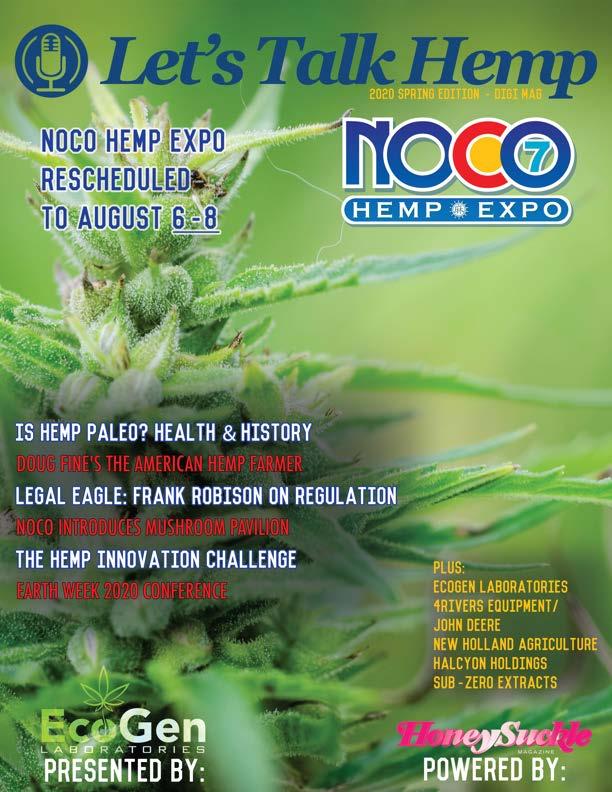
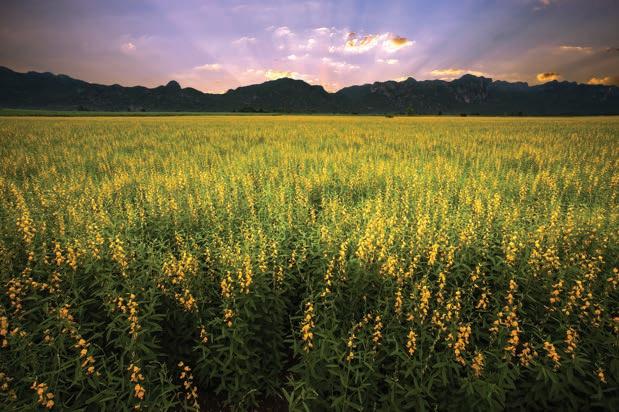
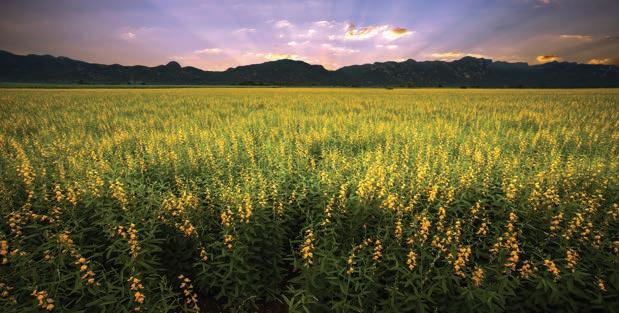
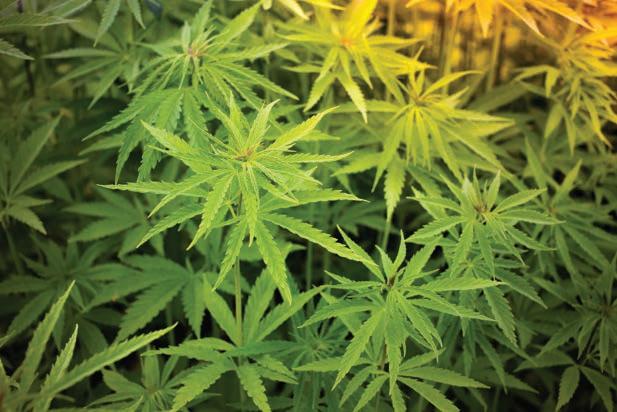
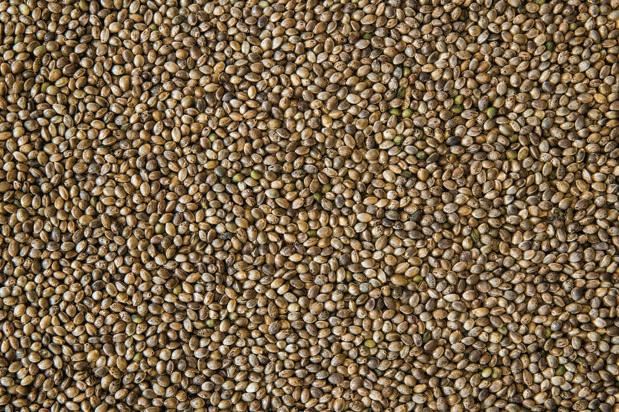
Welcome back our friends to the show that never ends...just a slight delay with a reschedule to a bright summer day!

Our spring Edition of the Let’s Talk Hemp digital magazine that was scheduled to be released during the opening ceremonies of the 7th Annual NoCo Hemp Expo starting today, March 26, 2020. Due to COVID-19, we’ve had to push back NoCo7 to August 6-8, 2020.
Today, we are celebrating our epic lineup of sponsors and exhibitors who have fared the uncertainties of this unique situation taking place all around us. The commitment to stay on board as participants and partners of NoCo Hemp Expo in order to move this amazing industry forward, no matter what, is impeccable.

During this time period, one thing has become obvious, the work we’ve done to date and the momentum of the hemp and cannabis industries are still moving forward, full-steam ahead. As an industry, we are unstoppable by propaganda, misinformation, disinformation, bad governance, discriminatory banking practices, corporate media, and even nasty viruses that literally shutdown normal life on Earth.
Nothing short of species and planetary annihilation is going to stop this movement or The Hemp Revolution.
As we create new paths of resilience, we would like to thank our NoCo Team, extended family, sponsors, exhibitors, speakers, event partners, volunteers and the greater collaborative hemp and cannabis industries for coming together during this time. The community is working together, standing together and being stronger together.
This plant is an essential component of society on so many different levels. As we remain on this path to ending its prohibition, and moving from a petroleum-based to bio-based economy and consciousness, we must continue to be united in arms and to make a positive impact on the future of our collective world.

This publication represents many who have come together in support of the hemp industry and betterment of the planet. We at WAFBA (We Are For Better Alternatives) hope for true, genuine and positive energy as we climb our way to the mountaintop.
Until we see you in August at NoCo 2020, be healthy, stay green and be safe.
Morris, Elizzy and Lori WAFBA
PRODUCER’S LETTER:

4 Let’s Talk Hemp @ NoCo7 Digital Magazine NOCO Producer Morris Beegle Executive Director Elizzy Knight Operations & Finance Lori Buderus Art Director / Graphic Design Ben Wright Webmaster Debby West Communications Manager Joanne Lovato Exhibitor Manager Kristen Kunau Volunteer Coordinator Brandi Higdon Social Media Coordinator Cait Curley Customer Service & Sales Victoria Miller Natasha Varian Melanie Rodgers Programming & Content Coordination Morris Beegle Steve Hoffman Evan Tompros Heather Collins Kayla Haddix Rick Trojan Doug Fine Eric Mckee Public Relations & Compass Natural Marketing Steve Hoffman
Publisher
Ronit Pinto
Executive Editor
Jaime Lubin
Senior Editor
Keyanah Nurse
Staff Editor
Neha Mulay
Creative Director & Digital Magazine Design

Sam C. Long
Honeysuckle Writers
Elise Bortz
Tasnia Choudhury
Jaime Lubin
Neha Mulay
Keyanah Nurse
Scheril Murray Powell
Doris Prodanovic
NoCo Writers
Morris Beegle
Heather Collins
Steven Hoffman
Winona LaDuke
POWERED BY

5 Let’s Talk Hemp @ NoCo7 Digital Magazine
HLG is the leading international full-service law firm recognized throughout the cannabusiness™ community for its commercial awareness and commitment to its clients. For over a decade, HLG has been dedicated to quality, market wisdom, making connections, access to capital and strategic advisory.


Contact us (844) 708-7087 Follow HLG @hobanlawgroup Or visit Hoban.law for up-to-date cannabis news
WHERE DO YOU FIT INTO THE HEMP SUPPLY CHAIN? THE CENTER OF THE WORLD’S LARGEST CANNABUSINESS™ NETWORK
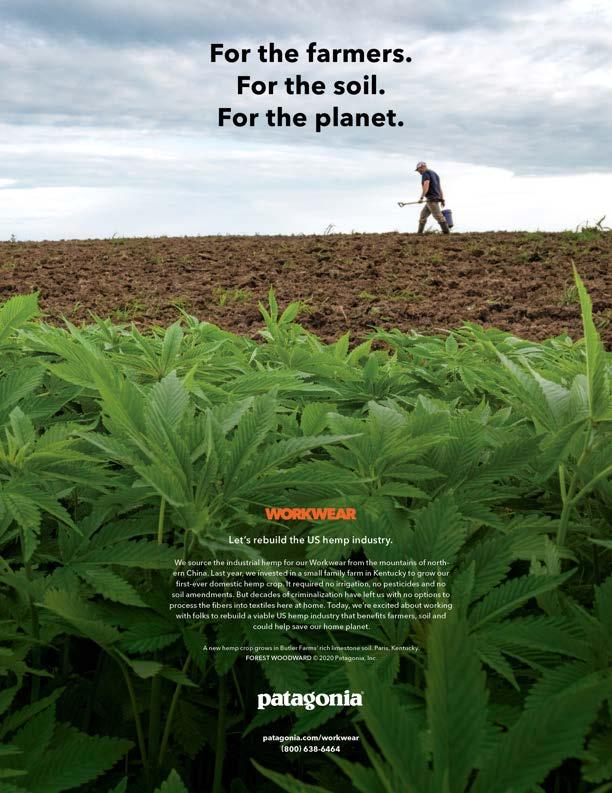
TABLE OF CONTENTS
Producers’ Letter – 3
Canopy Boulder: Accelerating the Future of Hemp – 16
NoCo Exhibition and Show Floor Map – 18
Hemp Futures: Trends, Predictions, and Opportunities – 22
Tomorrow’s Tech, Today: EcoGen Labs Brings Cannabinoid Products of the Future to Market – 30
The Hemp Blueprint for OGs and Novices Alike: Doug Fine’s American Hemp Farmer – 36
An Interview with Doug Fine – 42
In the Field: John Deere and 4Rivers Equipment’s Hemp Journey – 44
Global Growth: The World’s First Hemp Innovation Challenge – 46
Halcyon Days: Investing in Hemp and Endocannabinoids –56
Healing in the Soil: Reflections on Being Black in Agriculture – 58
Friends of Hemp: For the Love of the Plant – 66
The Magic of Mushrooms: NoCo to Display First Ever Mushroom Exhibit – 70
A World Leader in Clean Energy: Meet New Holland Agriculture – 74

Legal Labyrinth: Frank Robison Navigates Hemp Regulation – 76

Regenerative Organic Practices with Sub-Zero Extracts – 80
Is Hemp Paleo? – 88
Hemp’s Fabulous Fashion Journey - 102
My Courtship of Cannabis - 106
9 Let’s Talk Hemp @ NoCo7 Digital Magazine

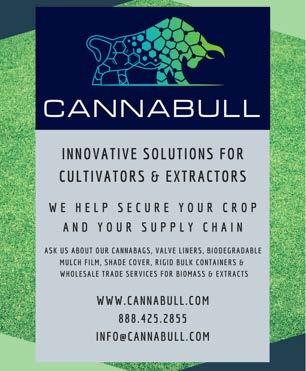

The UTEK Auto Rolling Processor is the first of its kind, automated end-to-end pre-roll processing system. The system is designed specifically to address the rising equipment, maintenance and labor costs associated with pre-rolls by combining the process of grinding, sifting, filling, weighing, shaking, tamping and twisting into one, easy to operate tabletop unit. The UTEK has the capability to produce up to 500 pre-rolls an hour, 4,000 day, 20,000 week with just 1 operator working 8-hour shifts. Entire teams whose single purpose is to produce pre-rolls can now be re-purposed. Cost efficiency, product quality and limited touch points are all advantages of the UtekTik process.



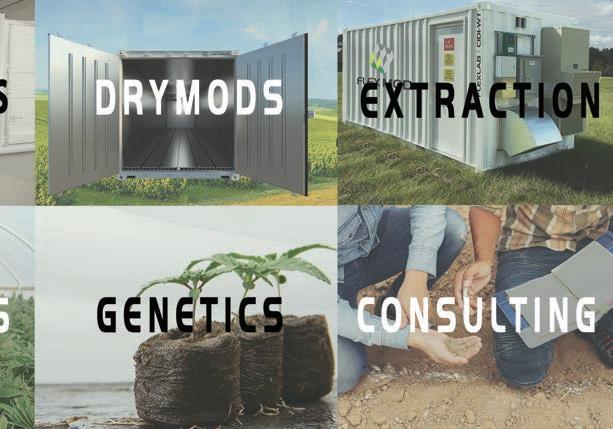
11 Let’s Talk Hemp @ NoCo7 Digital Magazine Visit Us at Booth
700 www.NAFhemp.com
#
CONTACT: Jim Palasota 480-656-1123 Sales@UtekTik.com
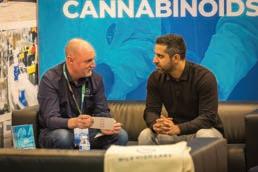




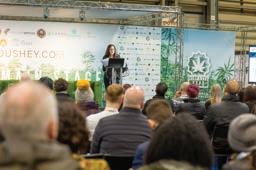




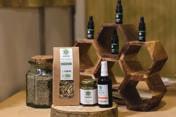










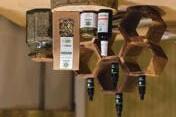












































Let’s Talk Hemp @ NoCo7 Digital Magazine EXPO EXPO MAR 5TH & 6TH 2021 SPRING 2021 birmingham FIND OUT MORE ABOUT THE HEMP & CBD EXPO ON OUR WEBSITE WWW.HEMPANDCBDEXPO.COM EXHIBITOR ENQUIRIES SALES@HEMPANDCBDEXPO.COM | +44(0)1773 687 227 5000 attendees 75% b2b visitors FREE registration 150 exhibitors 50+ guest speakers 2019/20 SHOW STATS the uk‘s no.1 cannabis products trade show THE UK'S NO.1 CANNABIS PRODUCTS TRADE SHOW


SilverMountainHemp.com
Designed, engineered, powered and manufactured by French Brothers Inc. Partnered with Silver Mountain Hemp Company * patent pending



14 Let’s Talk Hemp @ NoCo7 Digital Magazine WHAT’S NEW @ LET’S TALK HEMP LetsTalkHemp.com WEBSITE, DIGITAL MAGAZINE, NEWSLETTER, YOUTUBE PAGE & PODCAST Keep up-to-date with the best curated cannabis and hemp industry content on the web "Cannabis Trumps Chaos" kicks off on Spotify, iTunes and other digital platforms Season 3 of Let's Talk Hemp & The 422 begins March 25, 2020
August 6-8
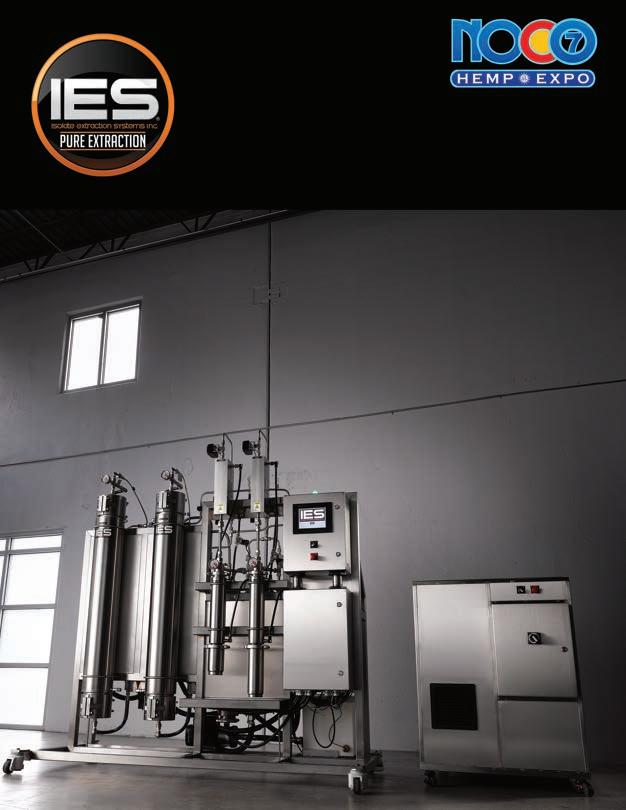
Canopy Boulder Accelerating the Future of Hemp
By Tasnia Choudhury
Comprised of a small but dedicated team of three, Canopy Boulder has taken on the ambitious task of “Moving the Cannabis Industry Forward.” As a cannabis business accelerator and venture fund,Canopy Boulder has made its mark by offering a 16 week intensive accelerator course that helps start-ups in the space achieve rapid growth. Although the company offers varying types of monetary investment -- up to $120,000 in initial seed investment in return for 6-9.5% ownership, $20,000 in equity and an additional $100,000 for qualifying companies with a valuation cap of $2.5M— it also offers a unique kind of mentorship for those seeking to break into the cannabis space.
Through pitch practices, business owners and entrepreneurs receive critical, hands-on feedback on everything from the aesthetics of their visual aids, the effectiveness of their presentation persona, or the accuracy of their market data. Such feedback also includes hypothetical, yet hard hitting questions that interested investors may ask of these companies when pitching for seed rounds and beyond. Attendees thus leave the program well positioned to enter, expand, and succeed in the cannabis market.
Patrick Rea, the founder of Canopy Boulder, drafted a business plan for the company when his wife dragged him to a demo day in Boulder, Colorado in 2014. At a time when the fervor for cannabis entrepreneurship did not match the technical and business acumen of the average person entering the space, Rea realized that start-up companies would need a supportive network of mentors and extensive educational
tools to continue forward.

“It takes a village. In Colorado, we’re really fortunate to have an industry that is really collaborative. Everyone is excited to lift each other up,” says Celia Daly, Canopy’s marketing manager. The company now boasts over 270 mentors and a portfolio of about 115 ancillary alumni companies who have raised close to $100 million in funding from angel investors, family offices, private equity funds, and hedge funds.
Daly summarizes Canopy’s first three criteria when assessing startups: “Team, team and team. Our belief is that a startup’s success is 10% idea and 90% execution. If you don’t have the team, the idea becomes irrelevant.” With that precedent set, Daly, Rea and Bob Goodman, Canopy’s managing director, determine a start-up’s credibility by their relationships in the cannabis space, their previous successes in raising capital, and their timing. In such a novel industry, timing becomes a unique aspect of success given that there is constant flux in legislation, access, and regulation. “We like companies that have proven their concept,” Daly adds. Almost half the companies that have participated in Canopy Boulder’s pitch practice this quarter are already generating revenue, effectively proving that there is a demand for them in the market. “We look for this traction.”
16 Let’s Talk Hemp @ NoCo7 Digital Magazine
At the 2020 NoCo Hemp Expo, the world’s largest industrial hemp conference, Canopy Boulder will be doing their part in “developing the cannabis space sustainably, profitably and rapidly,” explains Daly. They will be creating a list for investors of the companies that are exhibiting at the expo to create a symbiotic exchange of information. “We’re pushing the industry forward by connecting capital with really promising entrepreneurs.” The pitch practice, or “Pitch Slam,” a first for the expo, is a chance for seed-stage hemp companies to get their name out in the community and to a wider global audience.
Conferences such as NoCo break down the stigma surrounding the hemp industry, especially in states where possession and distribution remains illegal. “Boulder is the silicon valley of cannabis,” Daly asserts, “and we’re here to demonstrate that this industry, like any other, has a level of sophistication and professionalism.”
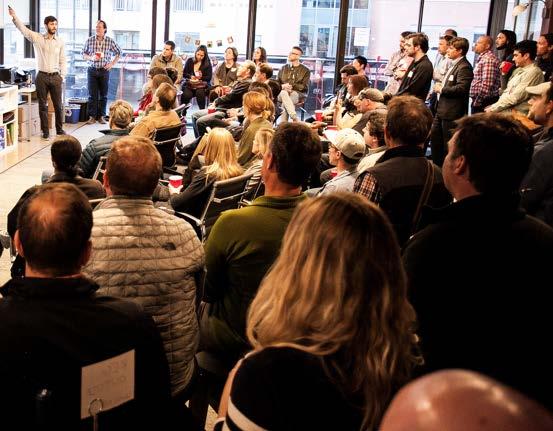
17 Let’s Talk Hemp @ NoCo7 Digital Magazine
Presentations at Canopy Boulder’s Spring 2020 pitch practice.
Boulder Hemp
Images: © Canopy Boulder.
LEVEL 2 EXPO HALL
18 Let’s Talk Hemp @ NoCo7 Digital Magazine
STADIUM ARENA MATERIALS ZONE VOLUNTEER ZONE INDUSTRIAL EQUIPMENT EQUIPMENT ZONE OUTSIDE / SOUTH HALL OF EDUCATION REGISTRATION STAGE PRESS & MEDIA STAGE SpeakEasy STAGE CONCEPTION ROOM MUSHROOM PAVILLION WAFBA VIP #1 GRILLE ACTIVATION LOUNGE SPA ART ZONE KIDS WAFBA STAFF VIP #2 STAGE CAFETERIA SOUTH LOAD IN DOOR NORTH LOAD IN DOOR ENTRANCE ENTRANCE PLANTS ZONE INT’L PAVILLION SpeakEasy Networking
LEVEL 3 LEVEL 2
LEVEL 1
EXPO HALL Denver, Colorado Denver, Colorado CONNECTING LINK CONNECTING LINK INCEPTION ROW BAR & GRILLE TALENT GREEN ROOM PRODUCTION LOAD-IN HEMP FOODS CAFE INTERNATIONAL PAVILION MATERIALS ZONE INDUSTRIAL EQUIPMENT PLANTS ZONE ACTIVATION ZONE VIP LOUNGE #1 Volunteer Zone 306 203 204 205 102 103 206 207 105 106 208 220 221 219 218 217 216 215 310 309 308 307 407 409 410 514 408 311 319 320 321 318 317 611516 712 731 PZ9 PZ8 PZ7 PZ6 PZ2 PZ3 PZ4 PZ5 PZ1 713623 714622 715621 716620 717619 718618 719 730 729 728 727 726 725 724 837 MZ31 MZ34 838839841 834833 832 831 830 920919 921918 931930 932 944 943 942934 935 940936 927 926 941 938 937 922 915 914913912911910909 939 923 917 906 905 904 903 902 901 900 908907 925916 924 929 933928 829 828 827 840 842 835 MP 6 MP 5 MP 4 MP 3 MP 2 MP 7 MP 8 MP 9 MP 10 MP 11 MP 12 MP 13 MP 1 836 617 616 615 720 612 613 614 515 312 313 314 315 414 413 412 411 511 609 608 610 512 513 209 316 214 213212211210 109 107 108 104 2 3 4 5 202 201101 200100 406 401328 400329 402327 500 423 501 502 503 422 421 504 505 420 419 506418 507 508 417 416 509 510 526 525 524 600 601 523 522 602 603 521 520 519 518 517 634 633 632 631 630 629 628 627 626 625 700 701 702 703 704 705 809 808 807 806 805 816 810 811 812 813 814 815 820 819 818 817 822 821 823 824 825 826 706 740 739 738 737 736 735 734 733 800 801 802 803 804 707 708 709 604 605 606 607 710 732 IP11IP10IP9IP8IP7IP6 IP2IP1IP3IP4IP5 415 326 403325 404324 405323 322 303 302 301 300 224 225 304223 305222 MUSHROOM PAVILION INCEPTION ROW CONNECTING LINK MZ2 MZ1 MZ6 MZ5 MZ9 MZ14 MZ16 MZ10 MZ25 MZ24 MZ26 MZ15 MZ8MZ7 MZ27 MZ21 MZ23 MZ28 MZ30 MZ11 MZ13 MZ18 MZ20 MZ33 MZ32 MZ35 MZ36 MZ37 MZ38 MZ17 MZ3 MZ4 CAFETERIA NORTH ENTRANCE SOUTH ENTRANCE NO ENTRY SOUTH LOAD IN NORTH LOAD IN REGISTRATION AREA SPA SMOKE HOUSE CONCESSIONS HEMP FOODS CANTINA BAR & GRILLE CONCESSIONS X
1 STADIUM ARENA LARGE EQUIPMENT LEVEL 3 LEVEL 3 PRESENTED BY PRESENTED BY PRODUCED BY
LEVEL
Education & Advocacy
Fashion Show
Conception Room
Art Zone | Kids Zone
VIP Lounge #2
LEVEL 1
Let’s Talk Hemp Stadium Arena Stage
NoCo7 Music Experience
Let’s Talk Hemp Speak Easy Stage
Speak Easy Media Space Silent Disco
19 Let’s Talk Hemp @ NoCo7 Digital Magazine LEVEL 2 LEVEL 2 LEVEL 2 WAFBA STAFF VIP LOUNGE #2 ART ZONE Fashion Show NWC ADMINISTRATION CONCEPTION ROOM KIDS ZONE Education & Advocacy Stage Denver, Colorado PRESENTED BY PRODUCED BY MEDIA SPACE SILENT DISCO ENTRANCE / EXIT FRIDAY NIGHT check-in / tickets ELEVATOR CHARGING STATION
ARENA
• Farm Symposium
Night Concert
EXIT
EASY STAGE SPEAK EASY
LEVEL 3 STADIUM
Business Conference
Friday
Business Conference
SPEAK
Farm Symposium
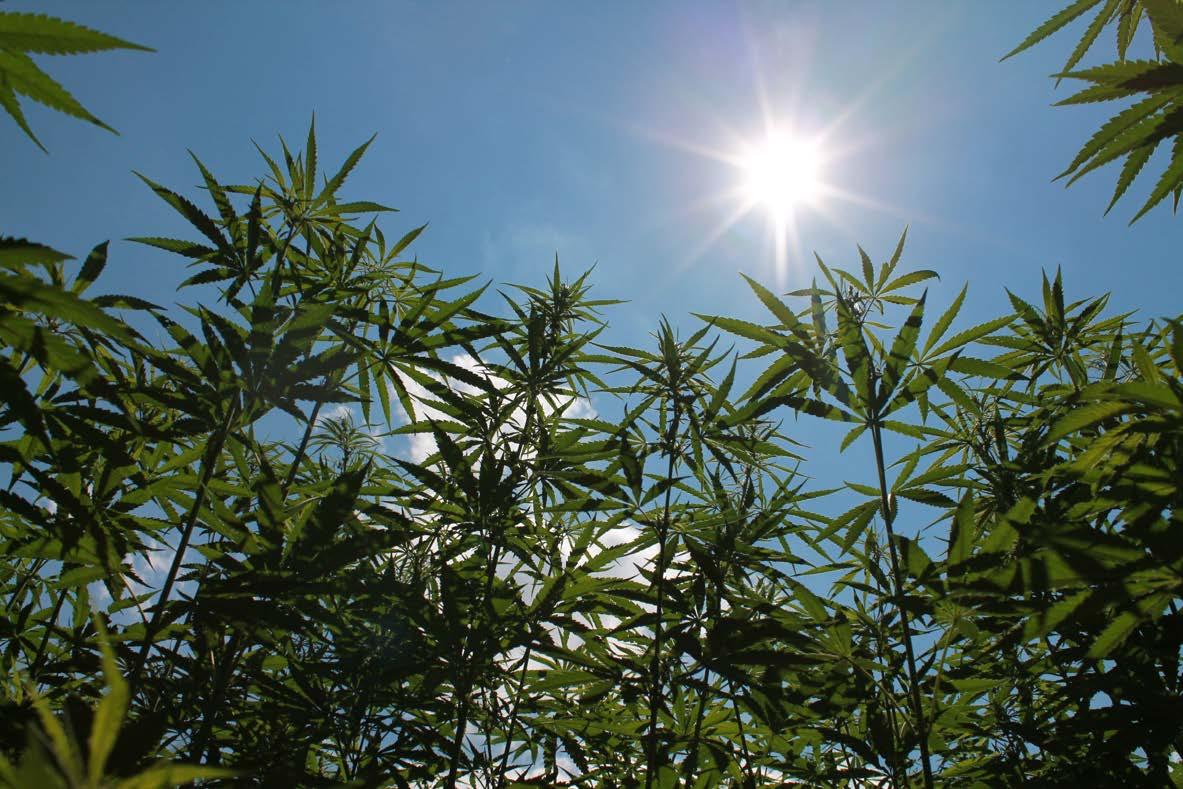

20 Let’s Talk Hemp @ NoCo7 Digital Magazine SAFE •SIMPLE • EFFECTIVE • PROVEN
THE
ORGANIC FERTILIZERS for indoor and outdoor growing. NOCO 2020 - Visit us at booth #831 !
SIMPLY
BEST

Trends, Predictions and Opportunities
By Steven Hoffman
Since the 2018 Farm Bill legalized hemp in the U.S., the hemp industry has quite literally taken off. Retail sales of CBD products in the U.S. alone were expected to surpass $1 billion in 2019, a 133% increase over 2018 sales, and Hemp Industry Daily projects that retail CBD sales will increase to $10.3 billion by 2024, representing a five-year compound annual growth rate of 54%. Indeed, “2019 will forever be remembered as the year that launched America’s CBD craze,” observed Patrick McCarthy, CEO of ValidCare, a market intelligence and research platform for the hemp products industry.
While legalization has spawned a burgeoning industry, challenges for hemp operators proliferated in 2019. Retailers, vendors and other entrepreneurial businesses had difficulty finding banking and credit card companies that would work with them. In November, the FDA issued a consumer advisory questioning the safety of CBD along with warning letters to 15 companies, setting off late-year uncertainty among businesses that sell CBD in food, beverages and dietary supplements. For farmers, USDA’s interim hemp regulations, published in October, have generated controversy around proposed testing procedures and potential for farmers to bear an undue burden of costs if crops need to be destroyed.
They say hindsight is 20/20. If so, what better year for the hemp industry to remain proactive on all fronts? On the wish list for a new decade is the opportunity to co-create an industry built on authenticity, transparency, entrepreneurship, innovation, diversity, equal opportunity and cooperation, as well as one committed to promoting local economies, social responsibility and environmental stewardship.
Here’s a sampler of some of the hemp industry’s top issues, predictions and business opportunities to consider for the rest of 2020 and a new decade.

Product Safety, Transparency and Reliability
“Today’s consumer cares about where the products they put in, and on, their bodies come from. This trend will hit the hemp industry next, as consumers demand infor-
22 Let’s Talk Hemp @ NoCo7 Digital Magazine
Hemp Futures:
mation on plant origin, farming practices, product composition and sustainability,” says Patrick McCarthy of ValidCare. In addition, “broad categorical approval of CBD by the FDA won’t move forward until [industry] leaders band together to provide the
nabinoids. This will be driven by consumers and regulators alike, requiring ‘metered’ calibration of applicators like droppers or pumps, and standardization of serving sizes for consumables. Milligrams matter,” he adds.
Ditching the Pharmaceuticals
As consumers adopt CBD products, they are increasingly ditching the pharmaceuticals used for anxiety, depression and other mental health and physical issues. “Today, one in five Americans report they use hemp-derived CBD for ‘mental health reasons’ such as anxiety, says McCarthy. “In 2020, we’ll see even more people ditch Prozac prescriptions for non-impairing hemp-derived CBD to support their mental health goals. Expect brands targeting this audience to commission research on hemp-derived CBD’s functional benefits for mental health.” In addition, McCarthy notes that the “AARP crowd is one of the largest demographics using hemp-derived CBD for chronic joint pain and sleep. Expect this trend to increase as Boomers seek to replace prescription and OTC pharmaceuticals with hemp-derived products – and to lobby for coverage and/or reimbursement through FSAs, HSAs and supplemental Medicare policies,” he predicts.
Certification
safety data FDA is requesting. Until this happens, expect more FDA and FTC letters and class actions to chip away at consumer confidence and add risk and cost to branded operations,” he cautions in his new report, Ten Predictions for the Hemp-Derived CBD Industry in 2020. McCarthy also advises that as consumer sophistication grows in 2020, “they will demand easy and reliable ways to measure amounts when consuming or applying CBD and other can-
Discerning consumers seeking CBD supplements produced without the use of toxic, synthetic pesticides, or synthetic nitrogen fertilizer, much of which is derived from fracking, will be looking for the USDA Certified Organic seal on products. In March 2019, the U.S. Hemp Authority announced 13 companies had achieved the U.S. Hemp Authority Certified Seal, established to elevate consumer confidence in product quality and safety. Expect more demand for Kosher certification and other certification programs in the future.

Using the Whole Plant
The coming decade will see the focus move beyond CBD to the whole hemp plant, many experts predict. “I think a lot of…farmers are going to realize
23 Let’s Talk Hemp @ NoCo7 Digital Magazine
Photo Montage: Compass Natural; Hemp Salve Photo: Pixabay; Hemp House Photo: Wikimedia Commons
that “the cannabis plant is not a CBD plant,” Marysia Morawska, Horticulture Educator at the University of Nevada, Las Vegas, predicts in Hemp Industry Daily. “What we’re going to see is a movement toward a trifecta or even quad-usage plant – so, something that’s utilized for the hurd, for the fiber, for the flower, for the grain. And once we realize what those genetics are, we’ll end up realizing that each region specifically has growing styles that will be differentiated by the genetics of that region. And we will move into a place where processing will include not just CBD.”
Tribal Hemp
South Dakota Governor Kristi Noem may be no big fan of hemp, but Native American tribes in the state and throughout the country are embracing hemp. In South Dakota, the Flandreau Santee Sioux Tribe and Oglala Sioux Tribe have filed applications with the USDA to grow hemp, and the Rosebud Sioux Tribe plans to hold a vote on hemp before applying, reports U.S. News & World Report. Muriel YoungBear, a member of the Meskwaki Nation in Tama, Iowa, and a University of Kansas graduate student studying business, has been networking with industry leaders, visiting growing operations in Colorado and working within tribal economic development circles to become an educational resource for native nations in producing hemp and added value hemp products. Oglala Lakota tribal elder Alex White Plume has become a leading hemp producer and an inspiration to others.
Meanwhile, Winona LaDuke, a Water Protector, former candidate for Vice President of the United States, and founder of the Anishinaabe Agriculture Institute, is leading a hemp fiber renaissance in northern Minnesota, advocating for developing hemp textile mills and helping to drive economic opportunities in hemp production for Native Americans throughout the U.S.
Licensed hemp acreage quadrupled in 2019, but the industry’s infrastructure wasn’t equipped to handle rapid growth. “While there is certainly expansive demand for hemp and hemp-derived products, there is a critical lack of processors capable of keeping up with such, due primarily to a lack both of hemp processing equipment or a mature supply chain,” writes Chris Hudock of New Frontier Data. “In the coming year, the introduction of new processors and established markets will remain vital to the pace and overall health of the industry” he says.
FDA Guidance Could Take Time
With growing popularity and marketing hype surrounding CBD products, federal regulators are challenged to conduct research and establish policy, and this could take not months but years. Questions of health and public safety abound, especially as less scrupulous manufacturers and marketers make unsubstantiated health claims about the effectiveness of CBD products. Add to that the mysterious vaping crisis in 2019.
“You can’t go from zero to one hundred without the government needing to feel like it’s doing its job. There are checkboxes that bureaucrats and agencies need to see, and by statutory mandate, it’s the FDA’s core job to protect consumers,” says Bob Hoban, President and Founder of the Hoban Law Group. However, with regard to FDA’s warning letters, “Stop making claims,” Hoban urges marketers of CBD products. “The FDA’s perspective in [its] consumer update assumes there are no studies. This is inaccurate. And the legality of hemp derivatives is clear. If the FDA has studies that challenge the World Health Organization’s, and indicate toxicity, those should be released immediately. But every time the FDA says the words hemp or CBD the industry shakes and the media runs wild. Unless the FDA has some steak, all this sizzle is just adding to the noise. Do we really need more of that?” he asks.
Infrastructure Needed
Consolidation on the Horizon
24 Let’s Talk Hemp @ NoCo7 Digital Magazine
With Canadian companies acquiring U.S. hemp food, beverage and CBD businesses, along with competitor consolidation, as witnessed by the 2019 merger of RE: Botanicals and Palmetto Harmony, expect more mergers, acquisitions and consolidation as businesses and investors seek to gain efficiencies and improve the top and bottom line in a young, but highly competitive market.
Continued Growth, But Better Planning Required
“The hemp industry will surely experience explosive growth in 2020 as the USDA and FDA begin to release rules, take comments and eventually implement said regulations,” predicts Ray Mazzie, Director of Hemp Industries Association Florida, in Hemp Industry Daily. “Compliance and learning from others’ mistakes will prove to be invaluable to 2020 hemp operators, regardless of where they sit in the supply chain,” he advises. Mark Case, Founder and CEO of Knoxville, TN-based International Hemp Auction and Market, adds, “2018 was a gamble but a good year for most. 2019 was a gamble but a thin year for most. 2020 is not a year for gamblers. Rather, it will be successful only for those who are wise and prudent, fully integrated and who work with a good business plan to go the long haul.”
Steven Hoffman is Managing Director of Compass Natural, providing brand marketing, PR, social media, and strategic business development services to natural, organic, sustainable and hemp/ CBD products businesses. Compass Natural serves in PR and programming for NoCo Hemp Expo and Southern Hemp Expo, and Hoffman serves as Editor of the weekly Let’s Talk Hemp Newsletter, published by We are for Better Alternatives. Contact steve@compassnaturalmarketing. com.

Let’s Talk Hemp @ NoCo7 Digital Magazine
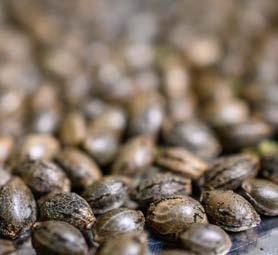
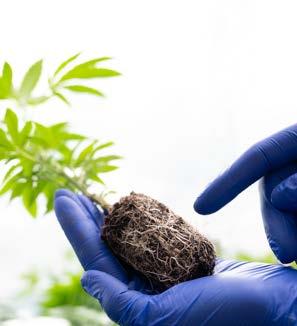
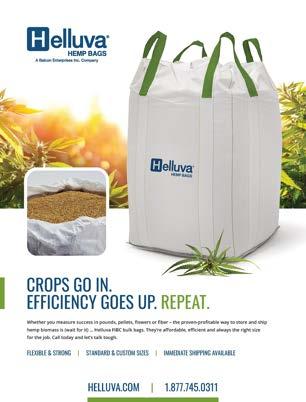

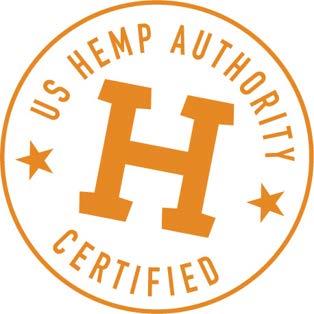
26 Let’s Talk Hemp @ NoCo7 Digital Magazine



. Living organic potting mix for the healthiest starts and the biggest plants Custom nutrient blends for elds Pre-seeded hemp ats www.PaoniaSoilCo.com 970-270-8037


28 Let’s Talk Hemp @ NoCo7 Digital Magazine IN A WORLD OF KNOCKOFFS, ONLY ONE HOLDS THE PATENT. SCHEDULE A DEMO coloradoextraction.com 800.513.5560 | sales@coloradoextraction.com Pure Processing Power™ solvent recovery 99% CBD extraction efficiency 92% proof purity 196 We are the technology. Our patented designs lead the industry in extraction efficiency, solvent recovery, and throughput. From equipment selection and installation to reliable performance and training, our team delivers trusted equipment that grows with you. Results dependant on quality of the biomass.
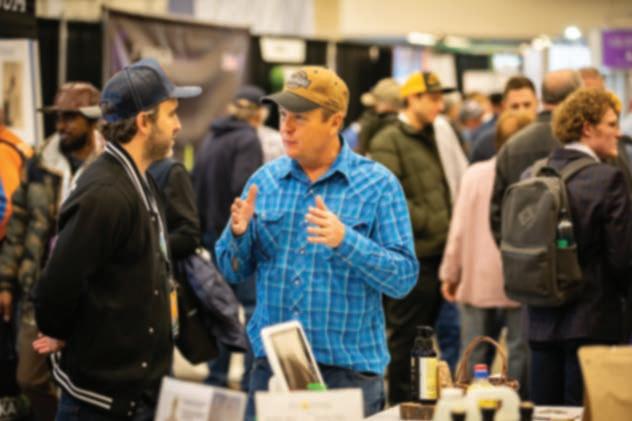










29 Let’s Talk Hemp @ NoCo7 Digital Magazine
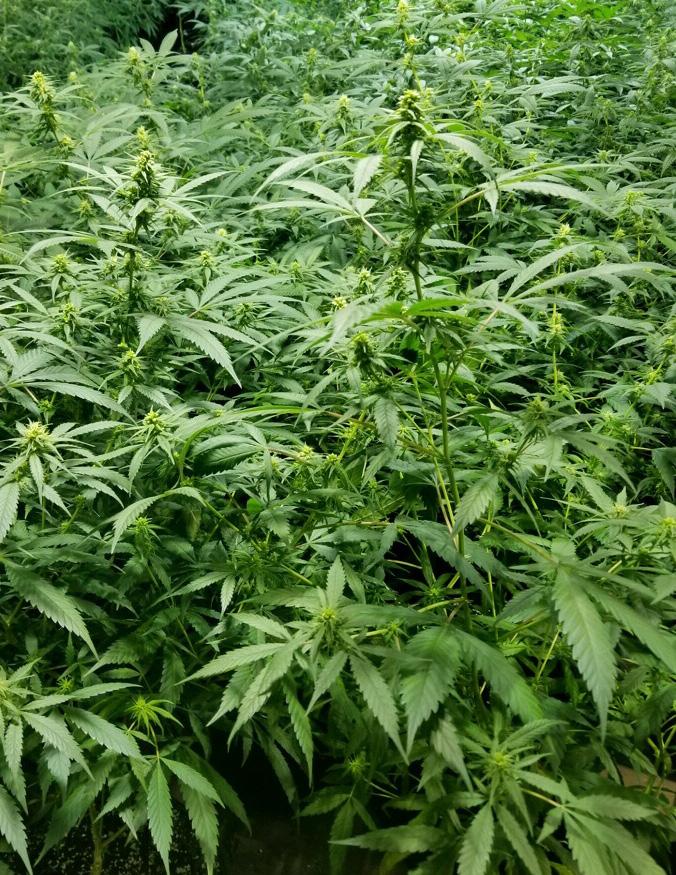
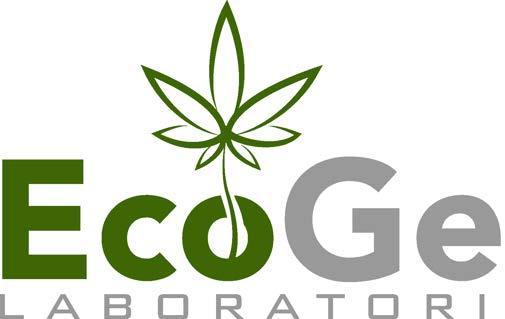
TODAY
TOMORROW’S TECH: TODAY

ECOGEN LABS BRINGS CANNABINOID PRODUCTS OF THE FUTURE TO MARKET
By Doris Prodanovic
For Joseph Nunez, co-founder of EcoGen Laboratories, it all began with just a few seeds. Armed with a background in engineering, Nunez and co-founder Alexis Korybut launched EcoGen in 2016 in order to create an ethical hemp farming ecosystem, producing quality products from proprietary machinery. The Grand Junction, Colorado-based EcoGen has now grown into one of the largest vertically-integrated manufacturers of hemp-derived ingredients in the United States, and in February 2020, raised more than $40 million in investment to continue developing CBD isolates, oils, water-dispersible products and beyond, on an industrial scale.
Nunez’s professional transition into cannabinoid extraction was organic, he says. “I was an engineer selling equipment and met an individual that had industrial hemp seeds. I didn’t know too much about it but from what I had heard about hemp, it [piqued] my interest and I decided to buy them during a period when no one else really had a viable seed product to purchase.”
Continuing his research into hemp-derived ingredients, Nunez says he was inspired to find a
way to create a reliable resource into the hemp wellness space, attracting the attention of many others in the industry. “We saw the writing on the wall and as the industry began to gain traction, it made sense to strategically grow the business and provide a quality product that was consistent, utilizing our proprietary machinery to provide a deeper extraction and be scalable to our customer’s needs. That’s the basis of our foundation and how EcoGen was born.”
From Seed to Sale
EcoGen owns its manufacturing process from end-to-end. The development of its own technology has allowed the team to be in complete control from seed to sale, which includes the variables of extraction, product authenticity and ensuring a reliable and consistent product is delivered to the customer. Nunez says it is all about the team’s constant motivation to innovate. “Our motto is that no matter how great something is, whether it’s a hand-fabricated machine or an individual seed, it can be made to be greater,” he says. “We incorporate this philosophy in everything we do and it’s the reason why we’ve been able to stay at the leading edge of innovation in the industry.”
“Providing a quality product for brands who need speciality hemp-derived ingredients but may not
31 Let’s Talk Hemp @ NoCo7 Digital Magazine
have the capabilities to do every process in-house felt like a natural way to support the industry. We’re passionate about elevating the standards within the CBD and hemp industry by ensuring the highest-grade, pure, reliable extractions are on the market.”
EcoGen’s own brand development, as well as its expansion into white label products, was a “logical next step and one embarked on with enthusiasm,” says Nunez. With more companies looking for full-service resources to bring new products to the market, access to manufacturers such as EcoGen can give producers the opportunity to understand how to work with cannabinoid ingredients.
“We wanted to provide a vehicle for manufacturers and brands to access the highest quality finished consumer products under a model that is simple to access and fully supports their vision and goals,” said Nunez.
the Signature touch
One of EcoGen’s signature products is its water-dispersible CBD. The formulation can be made with CBD, full-spectrum or THC-free broad spectrum materials and come in two forms – a liquid nano-emulsion, and a dry powder that can be made in concentrations up to 30 percent of active material. EcoGen uses only natural ingredients, which helps to set apart its water dispersible ingredients from competitors, says Nunez, where these formulations are not only water-dispersible, but have also been processed to be true, stable, micelle nano-emulsions. “Micelles are spherical colloid particles that allow for greater bioavailability of molecules that are insoluble in water, such as CBD and other cannabinoids,” he says. “These ingredients are ideal for any water-based formulations, some of which include beverages, tinctures,

32 Let’s Talk Hemp @ NoCo7 Digital Magazine
other ingestibles and cosmetics. This ingredient type is different from isolate and oils primarily due to its ability to be mixed with water, but also because the particles are sheared down to a nano-emulsion of micelles for faster absorption.”
Essentially, this means that the EcoGen team has developed a faster way for cannabinoids to be absorbed into the human bloodstream, which allows their effects to be more potent. Positive effects of CBD such as pain relief, improved sleep, or greater energy are that much more powerful when taken in water-dispersible form. But the good science doesn’t just apply to CBD. Nunez adds that “there are so many wonderful, lesser-known cannabinoids in hemp,” with the buzz around CBG and CBN potentially playing a big role in product development as brands look to differentiate and compete. Cannabigerol or CBG is a binding cannabinoid that research is showing to help improve cognitive abilities and strengthen bones, and may possibly have pain-relief effects equal to or better than THC. Cannabinol or CBN is proving in testing to be a powerful sedative and anti-convulsant, among other benefits.
looking ahead
As the presenting sponsor at this year’s NoCo Hemp Expo, the EcoGen team is optimistic about the new pathways for CBD and other cannabinoids across the globe. Consumer understanding of hemp, as well as ongoing learning about the endocannabinoid system and finding ways to improve their lifestyle and wellness for the better, continues to “remove the stigma associated with hemp, and create products that can change the world”.
“We believe specialty cannabinoids will play a bigger role this year as well,” says Nunez. “NoCo’s commitment to

33 Let’s Talk Hemp @ NoCo7 Digital Magazine
education and expansion of the industry by enabling new connections plays an important role in the evolution of the industry and we are excited for the learning experiences and new relationships that we’ll develop from participating.”
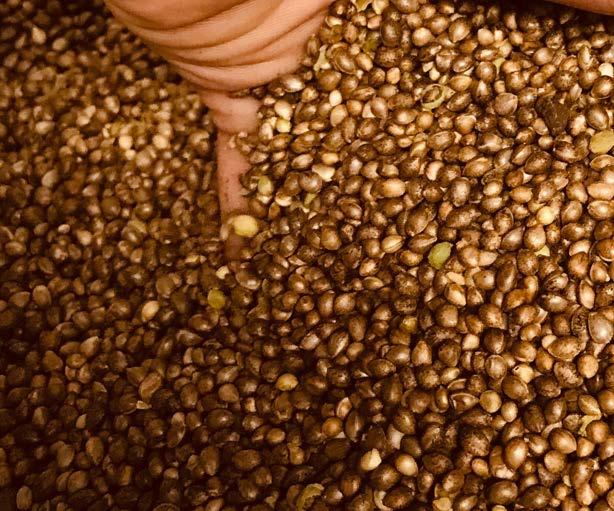
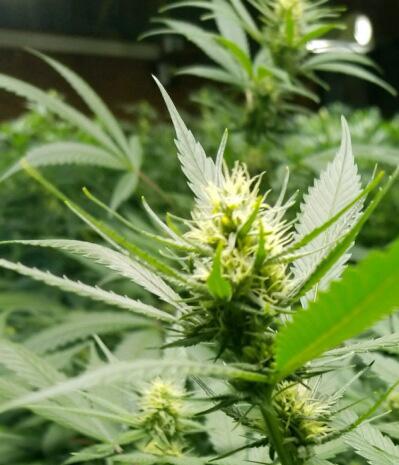
34 Let’s Talk Hemp @ NoCo7 Digital Magazine
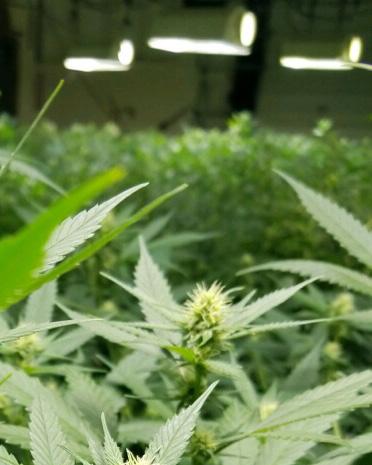
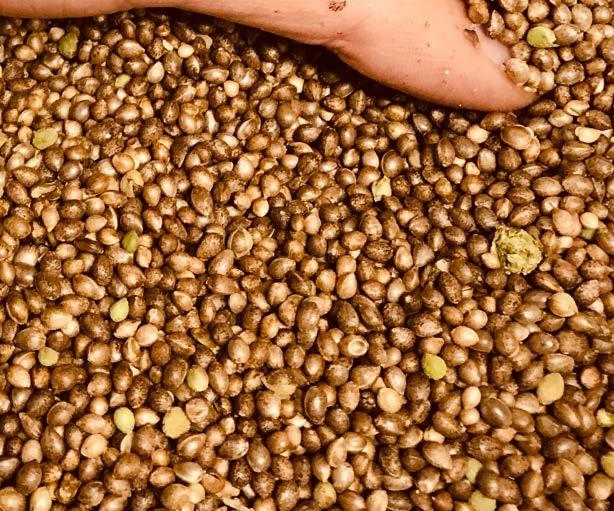
35 Let’s Talk Hemp @ NoCo7 Digital Magazine For more information, visit ecogenlabs.com All photos (c) EcoGen
The Hemp Blueprint for OGs and Novices Alike: Doug Fine’s American Hemp Farmer
Keyanah Nurse
When you pick up Doug Fine’s newest book American Hemp Farmer: Adventures and Misadventures in the Cannabis Trade, be prepared to take some extensive notes, preferably on hemp paper. As a best selling, award winning writer and inter-
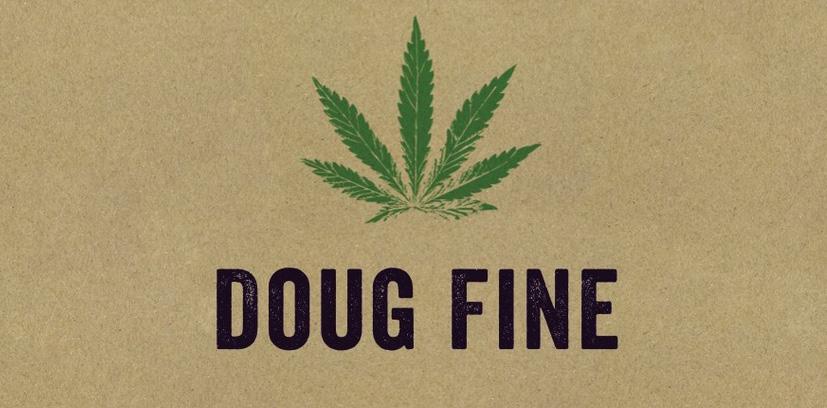
nationally recognized voice in the hemp/cannabis industry, Fine certainly has a lot of wisdom to offer his audiences. His oeuvre touches everything regenerative agriculture and hemp cultivation, and his fifth book American Hemp Farmer is no different. Writing on everything from microscopic soil rebuilding to the impending bust of the current “CBD bubble,” to the necessity of regenerative practices for entrepreneurs, the mission of Fine’s new book is to prepare his readers to enter an unforgiving and rapidly expanding market.

If you think that sounds like a lot, that’s because it is. But Fine’s wide thematic scope is neither accidental nor without serious purpose. Indeed, the very goal of American Hemp Farmer is to provide a blueprint of possibilities for those independent farmers interested in not only cultivating hemp, but also making a decent living while doing so. Consequently, the book’s very structure makes good on such a promise. With Fine serving as a spirited, knowledgeable guide, American Hemp Farmer’s readers begin with the science of soil rebuilding, continue with the intricacies of seed selection, ownership, and crop cultivation, and end with some hard hitting lessons in product development, marketing, and distribution.

According to Fine’s compellingly crafted narrative, it is imperative that independent farmers expand their knowledge base to include all the aforementioned elements. With a tone both serious and collegial, Fine outlines the harsh reality that within the current agricultural paradigm, farmers reap little financial gain from their crops. In fact, according to Bill Althouse, founder of the Fat Pig Society, an organic hemp cooperative in Fort Collins, Colorado, most farmers only garner three cents per retail dollar for their crops. This staggering statistic, which Fine cites in American Hemp Farmer, marks the fate from which he hopes to save independent hemp farmers, especially within the context of the currenty “gold rush” of the hemp/cannabis industry. Akin to the dynamics within the historic California Gold Rush of the mid-nineteenth century, there are also individuals within the twenty-first century cannabis industry who profit immensely from hemp-based products. Yet they are relatively removed from the cultivation of those products. For example, such “middlemen” are dictating the terms by which farmers can use, recycle, or experiment with seed genetics. As Fine notes, they are exactly like the shovel sellers within the Gold Rush: no matter the quality or outcome of the final product, they --rather than the golddiggers -- always reaped a profit.
To combat the control, influence, and disproportionate wealth garnered by these “middle-
37 Let’s Talk Hemp @ NoCo7 Digital Magazine
men,” Fine urges farmers to cut ties with them altogether and become fully fledged entrepreneurs. In other words, turning a decent profit in hemp cultivation means that farmers also have to create, market, and distribute value-added products. Although they now have to work year-round and wear more professional hats, the upside is greater autonomy, larger profit margins, and more support to regional economies. But as Fine noted to Honeysuckle in an interview, such a transformation from “farmer” to “farmer-entrepreneur” is one of the most difficult challenges facing the modern American hemp farmer today. “The farmer used to have a deal with society. He or she might not be paid so great, but...you work your ass off for eight to ten months, [and] you’re done...farmers had the winter off. And now It’s not like that anymore....when you’re trying to really make it work as an entrepreneur, you not only have to create the value-added product, and all the pieces of certifications and liabilities and all the stuff that goes along with that, but you have to hustle it and get out there to platforms, venues, marketing yourself directly online but also finding regional wholesale outlets for your products. So there’s so much more work involved. You have to have a long term game plan...in the end, it’s the only win win win.”
As much as the small “farmer-entrepreneur” is the focus of Fine’s book, American Hemp Farmer also finds an audience among conscious consumers who understand the environmental costs of maintaining the current status quo of industrial agriculture and large scale product distribution. In fact, the book presents a core political and economic intervention to that effect: regenerative practices have to be foundational to the fast-paced and ballooning U.S. cannabis industry. The current course is simply not sustainable. “What we’re not going for this time around is selling out,” Fine enthused, “or getting bought out
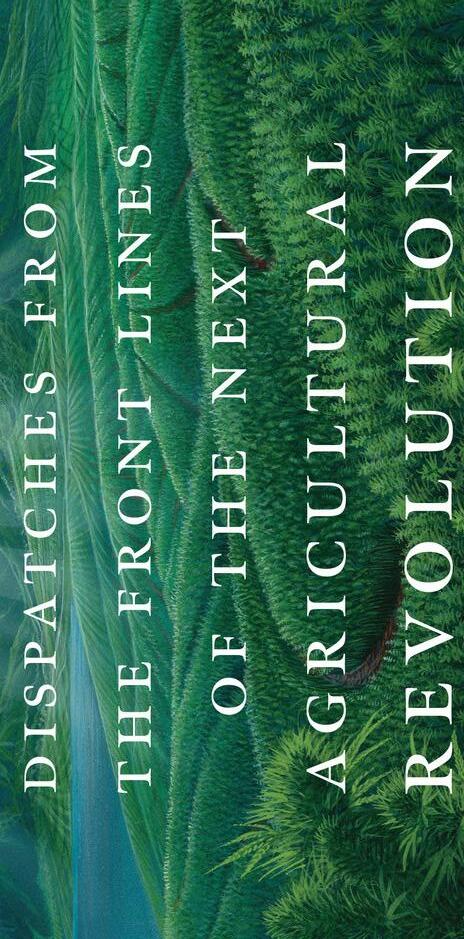
38 Let’s Talk Hemp @ NoCo7 Digital Magazine
American Hemp Farmer is available via pre-order at https://www.tatteredcover.com/pre-order-american-hemp-farmer and will be available wherever books are sold on April 23, 2020
by a hedge fund...that’s not the model. The longterm multigenerational play is just as entrepreneurial as any other type of capitalism, but what’s built in is the environmental regenerativeness and regional economy-building.”

Small, independent hemp cultivation is a concrete effort to combat climate change precisely by linking entrepreneurship with regenerative agricultural practices. The crop is exceptional at restoring topsoil, which in turn, can sequester three billion tons of carbon for every inch restored. With a growing percentage of the world’s population becoming climate refugees (Fine shares a powerful opening anecdote about his own experience of displacement through fire), the impetus to push regenerative agriculture as the new norm is greater than ever. Of course, there are technical practices attached to regenerative agriculture. For instance, using cover crops allows biodiversity to thrive in topsoil, and increases the likelihood of carbon drawdown. Such a strategy has beneficial effects on restoring

balance to agricultural ecosystems and helps combat the negative effects of climate change.
However, for Fine, “regenerative practice” is as much a set of techniques as it is an ethos. As he notes in American Hemp Farmer, it simply means “rebuilding as I produce, so I can produce again.” It means stewardship for the planet so that your children and grandchildren can have the same opportunities for harvesting our planet’s resources. It means understanding that on our finite planet, the zeitgeist that champions infinite growth is woefully and dangerously misguided. Finally, it means actively building a present and future in which we critically examine and appreciate how the environment sustains human society. To close with Fine’s own words: “If everybody who reads the book asks who is the farmer before purchasing any agricultural product, but especially a hemp product, they will have done a very, very, very good deed.”
Doug Fine is a solar-powered goat herder, comedic investigative journalist, bestselling author, and pioneer voice in regenerative farming, including cannabis/hemp. He has cultivated hemp for food and seed-building in four US states and teaches a Sterling College hemp class in Vermont. In addition, he is an award-winning culture and climate correspondent from five continents (for NPR, the New York Times, and the Washington Post, among others). His books include American Hemp Farmer, Hemp Bound, Too High to Fail, Farewell, My Subaru (a Boston Globe Bestseller available in two Chinese dialects), Not Really An Alaskan Mountain Man, and First Legal Harvest, a monograph that was printed on hemp paper.Willie Nelson calls Doug’s work “a blueprint for the America of the future.” The Washington Post says, “Fine is a storyteller in the mold of Douglas Adams.” A website of Doug’s print and radio work, Conan and Tonight Show appearances, United Nations testimony and TED Talk is at dougfine.com and his social media handle is @organiccowboy.
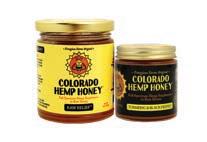


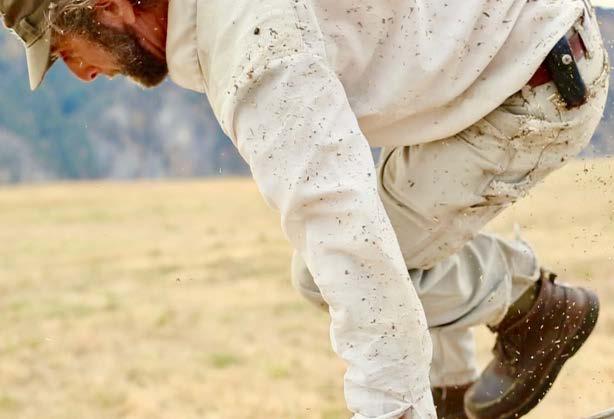
40 Let’s Talk Hemp @ NoCo7 Digital Magazine
coloradohemphoney.com
Stop by Booth #611 and taste the Colorado Hemp Honey difference!
by
Pure, natural ingredients harvested from our family-owned farm Expertly crafted and refined for a unique taste experience Third-party lab tested and verified
Created
beekeepers and hemp farmers.
Following the success of his previous book, Hemp Bound, journalist, author, and “neo-rugged individualist goat herder” Doug Fine put his money where his mouth was, getting his hands dirty with healthy soil and sticky with terpenes en route to growing his own hemp crop and creating his own hemp product. In American Hemp Farmer, Doug shares his adventures and misadventures as a farmer and entrepreneur, all the while laying out a vision for how hemp can help right the wrongs of twentieth-century agriculture, and how you can be a part of it.



is a comedic investigative journalist, bestselling author, and solar-powered goat herder. He has reported from five continents for The Washington Post, Wired, Salon, The New York Times, Outside, and National Public Radio. Fine is the author of four previous, including Hemp Bound: Dispatches from the Front Lines of the Next Agricultural Revolution. For more, visit dougfine.com and on social media @organiccowboy
ORDER YOUR COPY TODAY!
Since 1984, Chelsea Green has been the leading publisher of books about organic farming, gardening, homesteading, natural building, sustainable living, socially responsible business, and more. Now employee-owned.
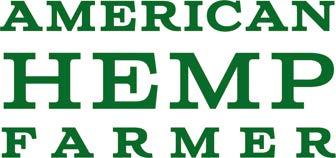

chelseagreen.com/newsletter facebook.com/chelseagreenpub @chelseagreen @chelseagreenbooks

41 Let’s Talk Hemp @ NoCo7 Digital Magazine
“A storyteller in the mold of Douglas Adams.”
—Washington Post
PUBLISHING the politics and practice of sustainable living
—Willie Nelson (on Hemp Bound
CHELSEA GREEN
Sign up for our e-newsletter:
WWW.CHELSEAGREEN.COM
“A fantastic piece of Americana that shows the way to a sustainable future.”
COMING
APRIL 2020 AVAILABLE FOR PRE-ORDER
—David Bronner, CEO, Dr. Bronner’s Magic Soaps
IN
“Doug has created a blueprint for the america of the future.”
American Hemp Farmer
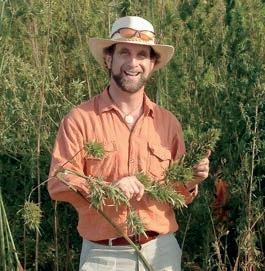
An Interview with Doug Fine
Investigative journalist, farmer, and goat herder Doug Fine has been writing about hemp for 26 years. Author of Hemp Bound and Too High to Fail, he believes that hemp can lead the way toward a new, regenerative economy. In this interview with Chelsea Green, Fine gives us the straight dope on one of the world’s most fascinating and lucrative crops and explains why you should start growing it, too.
Since Hemp Bound in 2014, how has the hemp landscape changed? What’s so special about the plant at this moment?
The publication of Hemp Bound coincided with the first federal legalization of hemp in the 2014 farm bill. Now we’re bookending it with American Hemp Farmer as the industry is exploding exponentially. It’s no exaggeration to say that the re-emergence of the cannabis hemp industry is the biggest social and economic phenomenon since the emergence of Silicon Valley and our digital age economy. There was steel and the automobile industry. There was high tech. Now there is cannabis hemp. The potential for independent farmers and struggling rural communities to benefit is greater than it’s been for a century.

Why did you decide to start growing it?
As a journalist who’s been covering hemp since 1994, I believe it’s too important a
phenomenon to the economy, to society, and most importantly, to the climate change mitigation effort not to participate in it. It’s not just me who feels that way. This is a genuine movement. The book talks about how we create lucrative livings for farmers who are going to be building soil and sequestering carbon as they go about their entrepreneurial efforts. It’s a win-win for humanity.
What makes hemp a good twenty-first-century crop?
Mitigating climate change is obviously essential if we want our kids to survive. But to ask economically struggling farmers to put all their time, energy, and savings into this, it has to have the potential to have a consistent, long-term payoff. And hemp does. There are so many aspects of the plant that are promising, and so many ways to be entrepreneurial. What we’ll learn in the book, largely through the humorous misadventures of my own projects, is that it involves a lot of hard work, but the potential is there, especially if we can educate customers to seek out regenerative, farmer-controlled entities.
Talk about your vision for how the hemp economy should work.
My slogan these days is, “This time the farmers are in charge.” We were a nation of 90 percent farmers in the founding fathers’ time, 30 percent farmers when cannabis prohibition began in 1937, and 1 percent farmers now. If we play this right from the regenerative entrepreneurial standpoint, we actually have a chance to get back to that 30 percent. The key is to figure out the formula that works in the modern financial world.
American Hemp Farmer proposes a regional, farm-to-table approach that starts with soil building. The end game is not cashing in on the Stock Exchange; it’s vibrant, regenerative communities. A product that is cultivated, prepared, packaged, and marketed regionally can be very lucrative. It’s not diluted.
How can we go beyond the CBD craze and avoid a boom and bust market scenario?
The correction to the wild west markets in that one segment of the hemp industry has already started. In every gold rush, it’s the prospectors who tend to get hurt the most. But hemp has 111 known cannabinoids, and the boom is based on only one component of the flower of the plant. Rather than thinking of it as a pharmaceutical with chemicals to be isolated, we should look at hemp entrepreneurialism from a whole-plant, top-shelf, vintage perspective. The craft side of cultivation will help us weather the vicissitudes of the many coming gold rushes.
Let’s Talk Hemp @ NoCo7 Digital Magazine



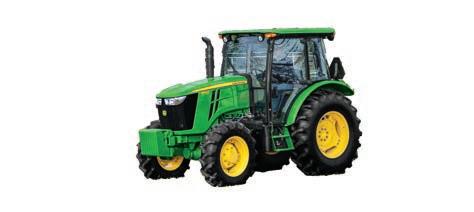








HEMP PACKAGES At 4Rivers Equipment, you can find what’s best suited for your land. Each Hemp Package offered below is tailor-made for any operation size. $68,338 NEW JOHN DEERE 5100E UTILITY TRACTOR $223,211 $376,785 NEW JOHN DEERE 6195R UTILITY TRACTOR
In the Field
JOHN DEERE AND 4RIVERS EQUIPMENT’S HEMP JOURNEY
By Jaime Lubin
John Deere has been one of the most recognizable agricultural equipment companies in the United States for nearly 200 years. Always looking to the future, the brand has ventured confidently in support of the hemp space through its Southwestern dealership 4Rivers Equipment, based primarily in Colorado with additional locations in New Mexico, Texas, and Wyoming. With intriguing developments ahead such as plans for national hemp seed certification, 4Rivers’s marketing manager Hannah Ross spoke to Honeysuckle about the new horizons the company sees with the crop and the agricultural industry’s next era.
HONEYSUCKLE MAGAZINE: Is 4Rivers exclusively a John Deere dealership or are there other companies as well that you represent?

industry, all these innovations. What do you see as its most important influences on the agricultural industry and 4Rivers?
Some of the things that we’re seeing change are… this industry [evolving] and learning those best practices. There are a lot of great things coming with certified seed that will help keep regulators at bay. For 4Rivers, as we move to refine the growing practices, we’ll truly find those right fits for equipment purchases or what equipment is needed for what intention. There’s a lot of solutions we can come up with, and it just depends on what the grower’s end goal is… what they’re doing with hemp, whether it’s industrial hemp or CBD oil… Sometimes it’s hard for us to prescribe the correct practice or piece of equipment, so we’re learning with growers as they evolve their practices. And as these regulations come through, and we’re learning what we can and can’t do from a federal perspective, we’ll start to see those practices and that equipment change over time.
HEMP PACKAGES
HANNAH ROSS: We are a John Deere dealership, and it has been a great example of partnership in that we have other brands as well to help customers get the equipment that they need for the [different applications]. John Deere has hundreds of use cases and [generally] they have the right tool for everything, but there are a lot of these niche growing markets that do require different kinds of tools. And that’s where 4Rivers is flexible in that we are able to align ourselves with other short lines that would help fill in the status line.
How does John Deere as a brand feel about the hemp industry? Are they as excited as 4Rivers is for all the changes?
At 4Rivers Equipment, you can find what’s best suited for your land. Each Hemp Package offered below is tailor-made for any operation size.
NEW JOHN DEERE 5045E UTILITY TRACTOR




• 2019 Frontier DH1280 Disk Harrow
• C&M Wolf Pro
• C&M PS 10
• Frontier PC1001 Cultivator

This is the first year that 4Rivers is participating as a NoCo Hemp Expo sponsor?


• STIHL FS 131
At this level, yes. In the years prior we’ve done a small booth, kind of getting our feet wet. This year is the first that we have really become more of a sponsor of the show… We’ve put a task force together to get our minds and our teams wrapped around this industry.

We are basically [John Deere’s] arm in this community providing support to growers and they have been a big supporter of us getting into this industry and learning what growers need. And what makes John Deere unique is that they have a great relationship with us dealers. We are their boots on the ground in a lot of ways. So they are helping us to learn more about what growers need, and then they’ll make more decisions about equipment lines that they need to either take on or alter their product to fit that need.
$68,338
NEW JOHN DEERE 5100E UTILITY TRACTOR
Seeing 4Rivers and John Deere in hemp reminds us there’s so much more than CBD here; there are a lot of possibilities for construction materials, biofuels, and more, and each of those applications takes a different approach to growing.
• Frontier DH1510 Disk Harrow
• C&M Wolf Pro
And [NoCo has] built confidence in growers to have a support system knowing where to go for that. It’s a great event to mind-share and connect growers so that they can get better each year at doing what they do.

• C&M PS 10
• Univerco Eco-Weeder

SPROUT GROW FLOURISH
Hemp is providing this new pivot for the agricultural
Definitely. And I think that’s what’s unique about 4Rivers in the space, because we deal with the construction side as well. We [provide] equipment for both construction and agriculture, which is kind of rare for a John Deere dealer. We do care about that industrial
$223,211
side [of hemp] for construction. That’s a big opportunity for both sides of our company… progressing a better solution for building materials that we have, as well as providing that industry for growers. It’s fun - we get to root for both sides of the hemp game.
What do you think is going to be the biggest change for 4Rivers this year, regarding equipment and technology innovation?







Our technology team has a lot of capabilities for precision agriculture practices, and with needing to know so much information about hemp in the field, we really see that as an opportunity for good partnership with companies that have the tools and resources available for growers… So in traditional AG practices, you’re going to be taking years of data and layering them to understand the soil and how that affects the plants and what seed types you’re putting in the ground. As they start certified seed and mixing it with that layered map data approach of your soil type, there should be many things you can learn from years of practicing that field work. We see that as an opportunity to learn more
for. Like, that might be a really good practice for CBD grows, but maybe not necessarily for industrial hemp. So it’s just interesting to find what works.
There seem to be many rich layers feeding into the business of agricultural equipment now, with the different levels of research and technological analysis.


Technology is hugely important to the future of John Deere. Part of that is because of the global population growth and the shrinking available land to produce. So the sustainability of land, treating the land and the natural resources to effect the best of their ability is highly important to John Deere and the purpose of feeding the world. They have a huge focus on technology because that’s what’s going to make us more sustainable over time… John Deere actually [presents at] the global CES tech expo in Las Vegas, and they bring out some of their prototypes, combines, and tractors
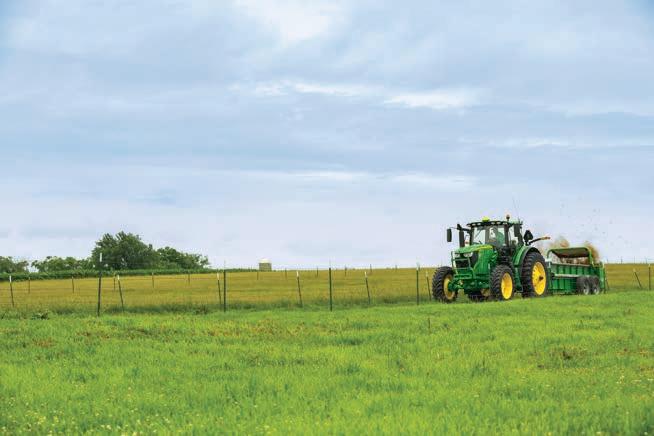
HEMP PACKAGES
At 4Rivers Equipment, you can find what’s best suited for your land. Each Hemp Package offered below is tailor-made for any operation size. $68,338
NEW JOHN DEERE 5100E UTILITY TRACTOR $223,211 $376,785
NEW JOHN DEERE 6195R UTILITY TRACTOR
GLOBAL GROWTH
spray paint
tiny houses

surfboard fins
sleep gummies
edible charcoal
vet stress decrease
squeezable veggies
mobile hemp stripper
CBG & CBD breeding
HEMP

INNOVATION NATION






environmental remediation
organic hemp farm incubator
biodegradable plastic utensils
hemp business education platform

solvent-free mechanical extraction
blockchain-based genetic tracking
geoponic and geotropic 3D hemp cultivation
social media, crowdfunding, ecommerce platform

harvesting & processing equipment for small farmers
hemp grown at zero gravity in the International Space Station
Let’s Talk Hemp @ NoCo7 Digital Magazine
THE WORLD’S FIRST HEMP INNOVATION CHALLENGE
 By Jaime Lubin
By Jaime Lubin
With the world turned upside-down as never before, our society is preparing for alterations to many different industries. That’s especially true of agriculture – which government representatives have deemed an “essential service industry” in this time of COVID-19 – and of hemp, long championed as a better alternative to many traditional areas of technology, fuels, construction, manufacturing, and more. At the 2020 World Ag Expo, held this past February in Tulare, California, an international audience saw the bright future for these two sectors dovetail at the inaugural Hemp Innovation Challenge (HIC) competition.

On February 12, entrants from fourteen countries pitched ideas for new applications of hemp that aimed to provide solutions for some of the most significant global problems today, including food supply, pollution, and homelessness. The HIC executive team, most of whom come from tech and startup backgrounds and work with the business strategies firm Atlas Consulting, partnered with the esteemed Larta Institute for the competition to ensure that all pitches met the standards for the UN’s Sustainable Development Goals. Larta, a leading nonprofit innovation hub, has a mission to improve the transition of science breakthroughs from lab to marketplace and its directors believe deeply in hemp’s potential to remediate planetary wellness.
It was an honor for the World Ag Expo to host the first-ever HIC, says the show’s Marketing Leader Jennifer Fawkes. The expo has a long history of pioneering innovations in agribusiness, such as a new products competition (this year’s winner has developed facial recognition for cows), and pilot program challenges with Tulare’s local university focusing on irrigation technology. “Whether it’s organic, conventional, regenerative, we need it all,” Fawkes states about the dramatic changes happening within the sector. “There’s a lot of people in this world to feed; not all of them eat every day as it is… U.S. farmers can produce a great crop no matter what. We can grow stuff in this country.” And while hemp is helping feed the Earth - this year’s HIC winner, Victory Hemp Foods, focuses
on changing Americans’ health through hemp-derived ingestible products – the possibilities are truly endless. NoCo Hemp Expo founder Morris Beegle served as one of the judges of the debut competition, and the HIC team will be on hand in Colorado this August to announce details for the next worldwide challenge. Mike Reid, HIC’s Executive Director, shared some details on what makes the challenge’s mission special and why his team will continue to encourage hemp entrepreneurs around the globe.
HONEYSUCKLE MAGAZINE: How did you develop the HIC and why is it such a unique opportunity for the hemp space?
MIKE REID: We were planning the first ever pavilion dedicated entirely to hemp at the world’s largest [agricultural expo]. It is the first time that hemp was given an exclusive space [there]. Christian Gray [founding partner of Atlas Consulting and co-creator of the HIC; yes, that’s his real name] felt a judged, fast pitch competition would attract hemp innovators. Christian’s idea in October became [my] plan in November and a reality in February. Winning entrepreneurs received strategic feedback about their innovation, business model, and go-to-market strategy. They connected with industry pioneers, leaders, students, researchers and hemp experts from all over the world. Joint ventures and transactions have already occurred!
HONEYSUCKLE MAGAZINE: Why did hemp feature so prominently at the World Ag Expo this year?
MIKE REID: World Ag Expo CEO Jerry Sinift and Marketing Leader Jennifer Fawkes heard how we invited 20 California farmers to a 2019 workshop to learn about hemp and 132 showed up. Based on this strong demand, when the 2018 Farm Bill legalized hemp at the federal level, they decided to dedicate an entire pavilion to hemp. It was a smart decision. Very quickly the entire pavilion sold out. A second space was allocated and the Hemp Village was born. It sold out fast too. It was the first time the hemp community had such a significant presence in the world of big agriculture.
HONEYSUCKLE MAGAZINE: There are a number of other big pitch competitions in the
47 Let’s Talk Hemp @ NoCo7 Digital Magazine
cannabis sector, but why is it so important to specifically fund hemp businesses in the agricultural, manufacturing, biofuel, technology, and other diverse sectors?
MIKE REID: The ongoing mission of the Hemp Innovation Challenge is to discover, amplify, and celebrate hemp innovators in North America and around the world. While funding may be a result, it is not the focus. Hemp is unique in its wide-ranging applications across many industries… Since hemp is playing a role helping so many people in so many different industries, it is important to get the word out about high-quality innovators.
HONEYSUCKLE MAGAZINE: What are the next steps for this year’s winner, Victory Hemp Foods?
MIKE REID: CEO Chad Rosen is working to ensure he has the capacity and infrastructure to meet the rapidly growing demand for his hemp heart-based food innovations. The food system, end to end, is the number-one cause of climate change. Bad food choices hurt kids’ development and ability to learn. Food is the biggest driver of chronic disease. When Victory Hemp Foods’ hemp based options help change how we eat, a healthy population will lead to improvements in [many] areas.
HONEYSUCKLE MAGAZINE: What other new concepts pitched at HIC introduced truly new for hemp’s future?
MIKE REID: The quantity and quality of the ideas was very high. From 14 nations on 5 continents they included:
1. Hemp pulp to make paper and cardboard
2. Handheld leaf scanner detecting THC and CBD in hemp
3. Hemp surfboard fins
4. Laser technology which detects and quantifies chemicals in hemp in seconds
5. Edible hemp charcoal used in the Japanese emperor’s coronation ceremony
6. Geoponic 3D agriculture cultivation for the International Space Station
7. Hemp straws to lower plastic pollution
8. Tiny hemp houses with wheels for the homeless
9. Patented hemp planting capsule
10. Hemp productivity and protection using aqueous CO2 misting technology
11. Hemp cooperative for Latvia, Estonia, and Lithuania
12. Hemp for remediation then profit
13. Liquid hemp for thermoplastics, nanofibers, and filaments
14. Hemp marketplace for insurance, extraction, and farming
15. Blockchain to democratize the funding process for hemp production in Zimbabwe
HONEYSUCKLE MAGAZINE: How did you partner with the Larta Institute for the competition?
MIKE REID: Bandhana Katoch JD, MBA, MS is head of Larta’s Sustainability practice. Bandhana and her team helped design the HIC program, coach judges, and develop criteria to evaluate the winners. Over the past 10 years Larta’s Global Agriculture Innovation Network (GAIN) and the Ag Innovation Showcase helped over 700 entrepreneurs in agriculture raise more than $1.7 billion. Some of the HIC finalists may end up working with Larta in the future.
HONEYSUCKLE MAGAZINE: Who really made the HIC happen?
MIKE REID: Practically overnight we assembled an amazing team on three continents! Preston Whitfield, Marc Ferguson, Morris Beegle, Joy Beckerman, Doug Edge, Chris Day, Bandhana Katoch, Carlos Gutierrez, and Rohit Shukla were all early supporters who encouraged us to move forward. Preston introduced us to everyone! Bandhana, Rohit, and Carlos from the Larta Institute helped us design the competition. Joy interviewed us on her Hemp Barons radio podcast and agreed to MC our event. Morris agreed to be one of our judges and expand the HIC to [NoCo’s community]. Doug Edge opened Farm Journal’s media channels to us. Chris Day helped get the word out via Hemp Industry Daily. Chris Boucher and Garry Meier agreed to judge the competition. Dylan Elmgreen designed the first website, helped
48 Let’s Talk Hemp @ NoCo7 Digital Magazine
find sponsors and encouraged innovators. Hanka Gabrielová let hemp innovators know about us in Europe and Asia. Ken Harding let hemp innovators know about us in Australia and New Zealand. Gary Hiller agreed to sponsor the winner. Jackie Reid designed graphics. Michael Kane and Alexander Meyer turned Jackie’s graphics into world class signs and banners. David Sorensen redesigned the website, and created Jasper the hemp farmer. It was a multi-national team effort!
HONEYSUCKLE MAGAZINE: How did most of the selected businesses connect their projects to the UN Sustainable Development Goals?
MIKE REID: Eight of the 17 UN Sustainable Development Goals (SDG) are impacted in a positive way by hemp innovators. Ending poverty is SDG #1 and and ending hunger is SDG #2. Our hemp innovator in Nepal is leading by example to show economic gain using his edible hemp charcoal. Our HIC winner is using hemp hearts to feed millions. SDG #7 is about clean energy and SDG #9 is about building sustainable infrastructure. One of our hemp innovators is making tiny hemp houses with wheels for the homeless. SDG #11 is about sustainable cities. One of our hemp innovators proposed using hemp to clean the soil as was done in Chernobyl after the nuclear disaster there. SDG #12 is about responsible consumption. Our hemp surfboard fin maker is a rocket scientist who uses hemp to reduce waste. SDG #13 is about fighting climate change. Our hemp straw maker is passionate about replacing plastic straws with biodegradable, climate-friendly, real hemp straws. SDG #15 is about creating sustainable ecosystems, fighting desertification, halting land degradation, and stopping biodiversity loss. From Zimbabwe to Latvia, several of our hemp innovators are working on using hemp to improve life on the land.
HONEYSUCKLE MAGAZINE: Where do you think we most need to be spearheading efforts to incorporate hemp into existing industries or create new ones?
MIKE REID: Hemp used for remediation like it was in Chernobyl after the nuclear meltdown can save lives. Hemp paper is more eco-friendly and sustainable than tree paper, as hemp can be pro-

duced much quicker than trees. Hempcrete and hemp adobe will lead to less waste and more effective construction. As Henry Ford said: “Why use up the forests which were centuries in the making and the mines which required ages to lay down, if we can get the equivalent of forest and mineral products in the annual growth of the hemp fields”. If we build and power vehicles from hemp, many will benefit.
The Hemp Innovation Challenge team wishes to acknowledge the support of all their sponsors, including: World Ag Expo®, Noco Hemp Expo, Oso Vega, Farm Journal, US Hemp Growers Association, Hemp Industries Association®, Biotech Institute, Hemp Barons, Farmtiva, Hemp Genetics International, Hemp Industry Daily, Larta Institute, CropTalk, Hemp Road Trip, Vote Hemp, HelpMEHemp, 360Branded, UC Agricultural & Natural Resources, Oregon State University Global Hemp Innovation Center, and Ag Innovation Showcase.
49 Let’s Talk Hemp @ NoCo7 Digital Magazine


51 Let’s Talk Hemp @ NoCo7 Digital Magazine




52 Let’s Talk Hemp @ NoCo7 Digital Magazine Boulder Creek Technologies IS-10 Infusion System produces the purest extract products in the market today. Learn more at NoCo7 Booth #202 and www.bouldercreektechnologies.com Extraction Done Better. •Lipid Infusion •Solvent-Free •Full-Spectrum •Scalable •95+% Efficiency •Improved Safety
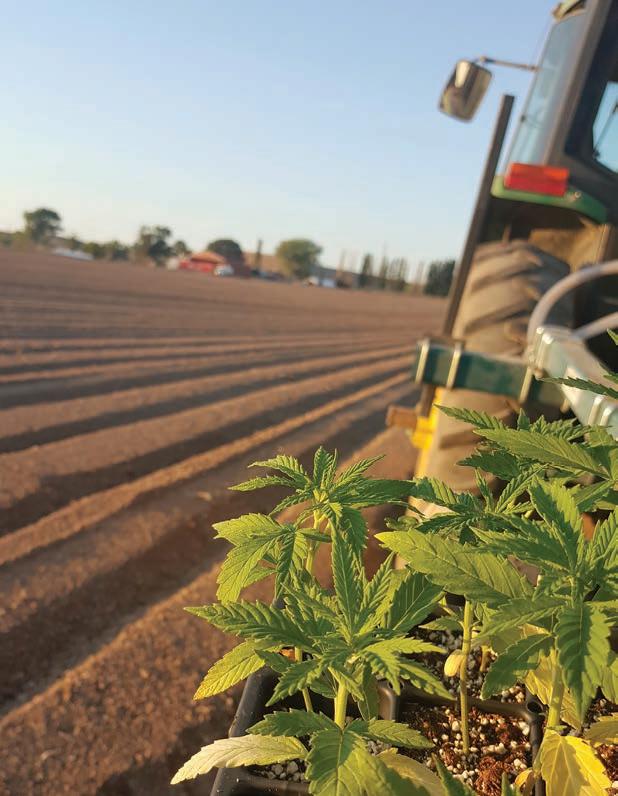
www.coloradohempsolutions.com Full Spectrum CBD+ Oil Supplements, Salves, Softgels, and Animal Supplements Premier CBD+ Products From The Ground Up COLORADO HEMP SOLUTIONS HEMP sun.soil.water
54 Let’s Talk Hemp @ NoCo7 Digital Magazine
55 Let’s Talk Hemp @ NoCo7 Digital Magazine
INVESTING IN HEMP AND ENDOCANNABINOIDS
By Jaime Lubin
Joseph Hickey’s long history with hemp has led him to initiate many groundbreaking feats over the years, including organizing the first International Hemp Conference; orchestrating the first planting of hemp on public land since prohibition with award-winning actor and activist Woody Harrelson; and revitalizing Kentucky’s economy through efforts such as reestablishing the Kentucky Hemp Growers Cooperative and co-creating the Kentucky Hemp Task Force to research the plant’s opportunities for the state’s farmers and entrepreneurs. Throughout decades of work, Hickey has assembled businesses and organizations designed to take the hemp industry to new heights – and his latest venture, Halcyon Holdings, will do just that by partnering with and investing in emerging innovative hemp and cannabis brands to transform our ecosystem.
Halcyon emphasizes bio-pharma and botanical products that stimulate the human endocannabinoid system, the system within our bodies which reacts to cannabinoid components in plants to produce healing responses such as pain relief and help with anxiety and sleep deprivation. As business opportunities for Halcyon and the larger hemp industry expand, Hickey shared his thoughts on the company’s developmental strategy and what investors into the space will be looking for this year.
HONEYSUCKLE MAGAZINE: What is the mission of Halcyon Holdings?
JOSEPH HICKEY: To provide a healthier seedto-shelf solution in the hemp industry through technological innovations.
HS: How is Halcyon choosing its properties to invest in? What distinguishes a company for you as an investor?
The properties Halcyon focuses on are intellec-
H a l c y o n D a y s
tual and technological innovations that will create a paradigm change in the emerging hemp industry. Because of hemp’s versatility, Halcyon endeavors to work with entrepreneurs and small family farmers from across the country. Our company looks to invest in like-minded ventures where both add value to each other.
HS: How does Halcyon’s focus on the endocannabinoid system shape and influence the company’s approach to investing?
The focus of Halcyon is medicinal in nature and that is reflected in the products marketed and sold through its in-house brands and private label projects. When the management team at Halcyon are evaluating whether or not to invest in a new product or technology, heavy consideration is given to how the new product positively affects the Endocannabinoid system.
HS: What should potential investors know most when investing into the hemp industry? How is the market changing and what makes companies in the space a solid investment or better still, a power play?
Potential investors wanting to enter the hemp industry should take into consideration the company’s management team, secure raw material source, production capability, product marketability, financial history and future projections. The market is changing at light speed today and in the present environment, solid investments are patentable technology assets that are valuable regardless of market conditions. Investors should also be considering a fully integrated, seed-to-shelf company with FDA and USDA compliant facility. Ensure the company’s financial projections are based on market trends.
HS: What investor trends can you predict for the hemp and natural products markets this year?
The investor trends in the hemp and natural products markets are going to be on scalability in production and processing, because lowcost producers and processors will survive the
56 Let’s Talk Hemp @ NoCo7 Digital Magazine
volatile market fluctuations we are experiencing now. Investors will also be searching for brands with name recognition that will stand out from the thousands of small brands presently on the market.



HS: Why did you want Halcyon to be a NoCo Hemp Expo sponsor, and why do you believe NoCo is such a significant conference for the hemp industry?
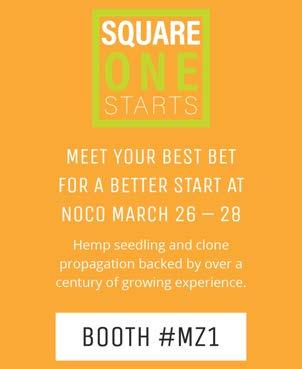
From its inception Halcyon has been an active sponsor at numerous Hemp conferences throughout the country. NoCo is a significant conference for the hemp industry due to the diversity of the vendors and other sponsors in attendance. The members within Halcyon have chosen to sponsor NoCo due to the fact that it is the right venue to spread the message and create awareness of what Halcyon is doing in the Hemp Industry.
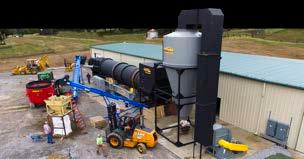
57 Let’s Talk Hemp @ NoCo7 Digital Magazine
NEW FEATURES. NEW IMPROVEMENTS. DRY MORE. DRY FASTER. ·New drum lengths increase retention time for more cost-effective drying. ·Pneumatically controlled discharge flap gate maintains a more consistent vapor flow. ·Redesigned maintenance steps manages material flow more efficiently. ·New flighting design increases drying productivity. ·Option for additional warranty available with purchase of system containing new blowers and burners. ·Advance purchase allows for optional ordering of feed and discharge conveyors, and bagging hopper. ·Includes 5 days of on-site technician supervised set-up, start-up and training. vulcandryingsystems.com/hemp-dryers/ DRYING SYSTEMS Call 660-263-7474 or e-mail hempdrying@vulcandrying.com CBD, just one of the effective Cannabinoids in our bath and body care. You deserve more than just CBD, our products deliver! Get 25% off plus free shipping on all orders placed at NOCO. (4 Case Minimum) Visit us at Booth #773 (970) 698-6137 hello@wholemade.com MORETHAN JUSTCBD. AUGUST 6-8

started participating in the cannabis community, I noticed the lack of diversity, especially with regard to the inclusion of brown people. The “Farm to Pharmaceutical” and “Farm to Bedside Table” movement did not reflect my community nor my heritage. Black people have been farming and feeding America for CENTURIES. Why then in this lucrative farming opportunity known as Cannabis, did I fail to see significant numbers of black people gaining cultivation licenses in my beloved industry? How did we get here? In order to answer that question, I explored my own relationship with agriculture and with the soil.
The Trauma of Enslavement
There is a lot of trauma associated with black people and the soil. Many of us associate farming and working in the soil with the historical period of enslavement. The image of black people toiling in the soil reminds us of oppression, forced labor, rape, and torture. Despite the gardens of my childhood, I was one of those people. But as I started to attend Black Farmers’ Conferences around the country, I noticed some alarming trends. The first trend is that black farmers were aging and I did not see enough of my generation or the next who were willing to follow in the profession. I also took note of the fact that there was not as much discussion of technological innovation at these conferences akin to those I saw in the mainstream conferences.
Cannabis Attorney, to an Agriculture Attorney as well. I also changed my language about the era of enslaved people of the African Diaspora in the United States. In Ghana, I was reminded by Dr. Princess Asie Ocansey, a prominent member of the Ghanaian royal family and internationally-recognized business engineer and humanitarian activist, that Black people were never simply slaves. They were scientists, doctors, philosophers, community leaders, teachers, mothers, sons, daughters, fathers, architects, builders, hunters, who were enslaved by people who would commit treacherous acts in order to have free labor.
In my recent trip to Ghana, I got to put my feet in the water of the other side of the Atlantic, which would have been the last part of home seen by those who were enslaved and brought to America. I was also given my African name: the name that I would have had if my ancestors’ lives had not been disrupted by enslavers. By knowing my nameAma (born on a Saturday) Serwe (beloved daughter of the king) - I felt a bit of fog clearing with regards to my identity. I could reposition the 400 years of enslavement and trauma as just a “pause,” allowing me to determine who I was meant to be and how I was meant to contribute to my community. There is power in restoration and having a mindset of overcoming the past. And as we know, your past does not dictate or define your future.
Trauma of Incarceration
I knew that part of my mission was to first address my trauma related to working in the soil and then encourage more black people to do the same, especially younger black people. Farming, bringing a seed to life, and stewardship of the land, are all important parts of our heritage that need to be preserved. I committed myself to spending more time on farmland, and as I did so, I fell in love with it. I started taking Agriculture certification classes offered for new farmers by Dr. Gilbert L. Queeley, PhD., at Florida A & M University so that I could be credible in my outreach to Black Farmers.
At this point, I transitioned from being solely a
In the Black community of the United States, it is safe to say that everyone knows someone who was incarcerated for a cannabis-related crime. I often say that a Cannabis charge is the gateway to the prison industrial complex. As a result, it is difficult to initiate a conversation with a Black Farmer about growing Cannabis. This is also true for hemp, even though it was legalized and descheduled at the Federal level by the 2018 Farm Bill. When I speak to black farmers about growing Cannabis, there is a hesitation because our experience demonstrates that a person can be locked away for decades for just a joint.
59 Let’s Talk Hemp @ NoCo7 Digital Magazine
The Great Migration
The HBO series The Watchmen opens with a scene of the brutal elimination of “The Black Wall Street” in Tulsa, Oklahoma through the massacre of 1921, known as the single worst event of racial violence in American history. Unfortunately, this was not an isolated occurrence in post-enslavement America. A self-sustaining community of black people was considered a threat. Lynchings were a common occurrence well into the 20th Century. As a result, many black people left their land, their Agrarian professions, and everything they knew in order to move North for safety and opportunity. Some spoke of their family’s history in the South, others never mentioned it again due to the pain, and their children knew better than to ask. We became detached from our love of growing food and the land.
At one of the minority and small farmers conferences where I speak, I met Lillian “Ebonie” Alexander, Executive Director of the Black Family Land Trust, one of the nation’s only regional land trusts dedicated to the preservation of Black and other historically underserved landowners’ assets. Alexander did an excellent presentation detailing exactly what was lost during this migration. However, as is evident through the very existence of her organization, this relationship with the soil is still present in our DNA. I believe that is a huge contributor to the growing number of black people who are embracing Urban Agriculture in cities across America.
The Decline in the Number of Black Farmers
The most recent USDA census indicates that the percentage of Black Farmers is at 1.6%, which is not representative of the percentage of Black People in the American population. In 1920, that number was 17%. The trauma and migration discussed earlier partially explain why that number has not increased over time. Further explanations include the generational gap between older farmers with experience and the younger generation, in addition to the issue of the documented systematic elimination of black farmers due to access to capital issues and unfair practices.
Despite these factors, I believe that cannabis can bridge that gap and create an “Agricultural Re-
naissance”. It is time for us to take back control over what we put into our bodies and how we nourish ourselves. So much of our well-being, health, and quality of life is tied to what we put into our bodies and the best way to control that is to grow your own. My mom refers to planting and nurturing her plants as therapy. I really believe that there is a level of healing that we as black people cannot tap into unless we reclaim our relationship with the soil and living things.
Moving Forward
When I speak at conferences around the world, I encourage people of color to get involved with growing their own food. If I, a person who barely went outside to witness the family garden, could become an Agriculturalist and hemp farmer, then anyone can restore their relationship with farming and the soil. An important part of this transition is finding available resources. I have learned the most by attending farming conferences, taking courses, and reaching out to extension programs of local Universities. I am now the Executive Director of the Black Farmers and Agriculturalists of Florida. This is not something that I would have predicted ten years ago. My consulting firm Green Sustainable Strong works with farmers all over the world. My recent trip to Ghana has inspired me to incorporate contributing to the continent of Africa into our Agricultural Development Strategy.
Black Farmers in this country have always been a vital and necessary presence. They are not going to disappear on my watch.

60 Let’s Talk Hemp @ NoCo7 Digital Magazine
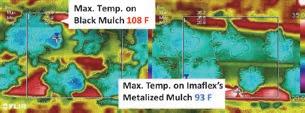
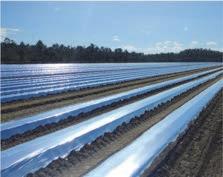




61 Let’s Talk Hemp @ NoCo7 Digital Magazine IMAFLEX Inc. Canada: Contact: Ralf Dujardin, Ph.D. 1‐877‐935‐5710 toll‐free 941‐284‐6334 info@imaflex.com ralf@imaflex.com Why mulch Hemp with MRM? Mode of action & efficacy for many cropsis scientifically proven: o confuses, blinds & deters pests; attracts honey bees; bee-safe o increases photosynthesis, growth o mitigates temperature stress Immediate control of Leafhoppers, Thrips, Aphids, Whiteflies & more Diminish insect-transmitted diseases without insecticide use Faster plant development; earlier, higher crop & phytonutrient yields Save herbicides, water & fertilizer Optional compostable & soilbiodegradable INSECT PROTECTION, GROWTH & YIELD BOOST THROUGH SOLAR REFLECTION Metalized Reflective Mulch
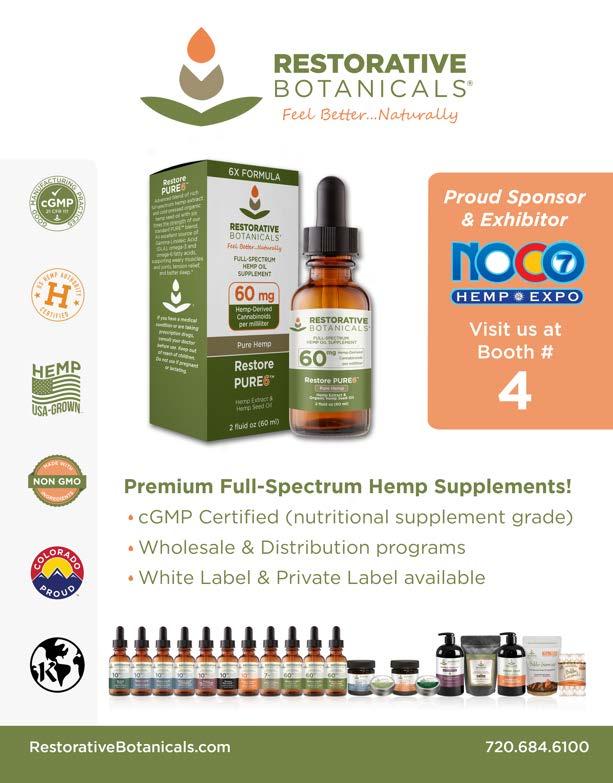

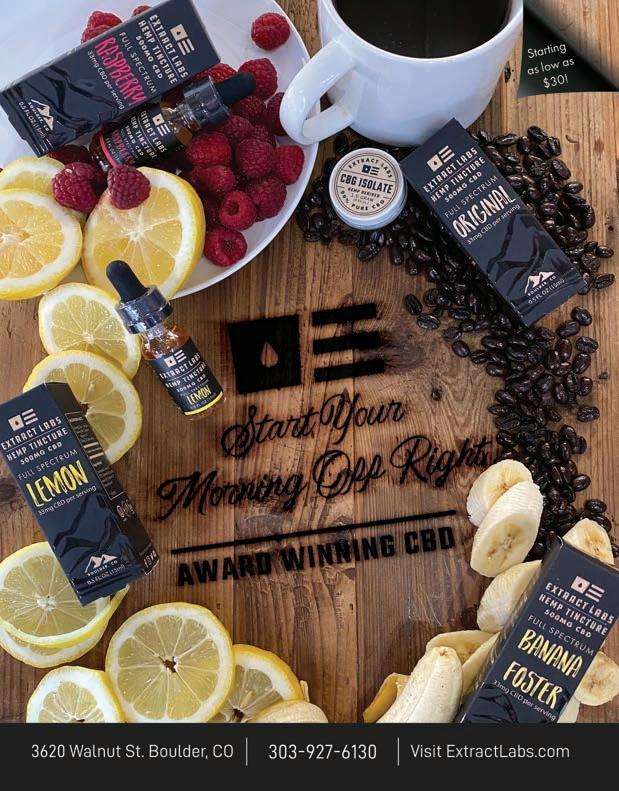

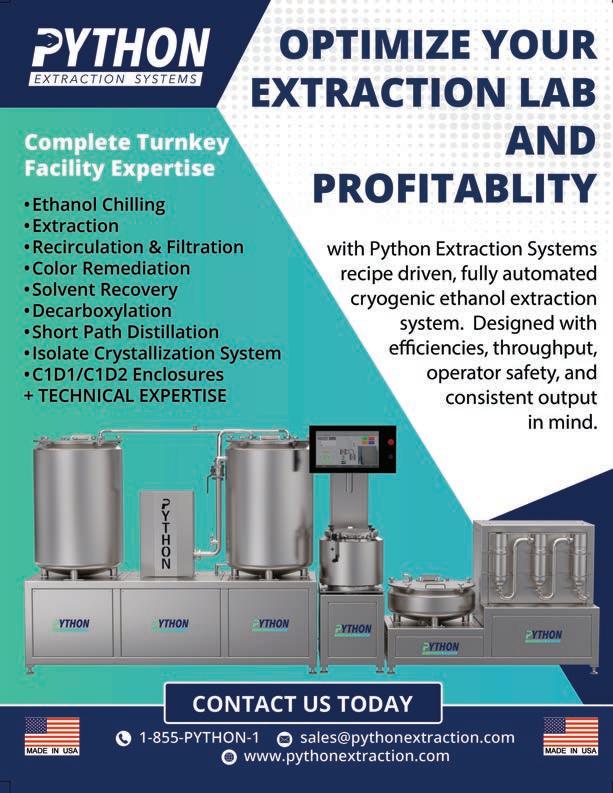







Whatever your process, ClearSolv can help you grow your cannabis extraction business. • • • ClearSolv • • Your Premium Solvent Supplier ETHANOL ClearSolv offers a wide variety of Ethanolbased products suitable for cannabinoid extraction, food and beverage production, and lab applications. [Ci>] Industry Expertise [e] Resourceful & Reliable • Kosher and Organic options • Completely and Specially denatured Find us at booth #423 • USP certified • 190 and 200 proof available Nationwide Availability Other Solvents and Supplies From Acetone to Hexane, we offer a range of solvents suitable for nearly any extraction process. In addition, we are able to provide MCT oil for tinctures and other cannabis extraction related products such as Activated Charcoal for your filtration systems.
FRIENDSOFHEMP
For the Love of the Plant
By Neha Mulay
Friends of Hemp (FOH) is a non-profit organization dedicated to the proliferation of the hemp industry through education and opportunity. Honeysuckle had the honor of catching up with Annie Rouse, the dynamic and passionate founder of FOH as well as Anavii Market, one of the premier CBD marketplaces in the United States, to learn more about the organization’s latest efforts in agricultural hemp opportunities, particularly as feed for livestock. Rouse, a Fulbright scholar on the history of hemp and a prominent expert in the industry, shared her valuable insights on the plant’s importance to global agribusiness.
Friends of Hemp will be showcasing their educational opportunities in the Plant Zone at this year’s NoCo Hemp Expo in August 2020.

HONEYSUCKLE MAGAZINE: FOH grows the hemp industry through various educational campaigns to raise funding for initiatives as diverse as hempcrete development, animal feed and care, farmer seminars, and research for new medical applications of hemp. Are you seeing holistic growth as these initiatives develop concurrently - that as we begin to invest in one, it will automatically influence the evolution of others?
ANNIE ROUSE: Our initiatives have spanned across four years of work. Each initiative has helped raise awareness for the organization and hemp as a sustainable alternative. As we educate, we try to educate on all uses of the plant, for instance, when we co-hosted the hempcrete workshop, we served hemp infused foods. When we host our hemp foods cook-offs, we have a table where we educate on all parts of the plant. This allows the general public to know about more than just one aspect of hemp and furthers our mission and capabilities.
HONEYSUCKLE MAGAZINE: FOH’s latest campaign
66 Let’s Talk Hemp @ NoCo7 Digital Magazine
is the Hemp Feed Coalition, which promotes the research and funding of opportunities for hemp to be developed and more widely accepted as livestock feed and sources of care. Why is hemp as animal feed so important to the future of the global hemp industry?
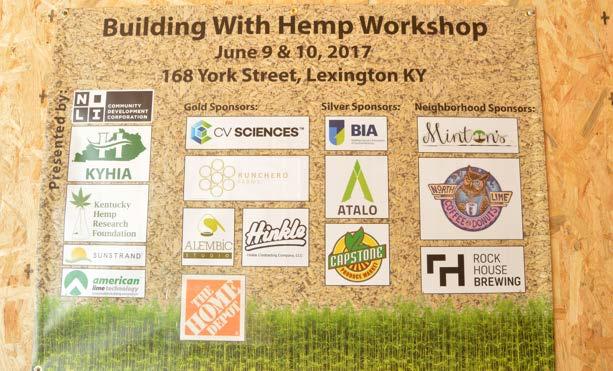
ANNIE ROUSE: Hemp as an animal feed is essential for the global industry; it not only provides an outlet for farmers and processors to sell raw material and processed by-products, furthering demand and industry growth, but it also is beneficial for human health. If we are what our food eats, then we should be feeding our food nutritious harina with balanced omega profiles, which is exactly what hemp offers.
HONEYSUCKLE MAGAZINE: The applications of animal feed are extensive; we’re not just talking about cows, pigs, chickens, but an all-encompassing scale that includes fish and other species we don’t typically think of as “farm” residents. What are some of the more surprising effects we could see from the Hemp Feed Coalition’s campaign if the goals are reached?
ANNIE ROUSE: I think in the long term we will see
improved human health, however, it likely won’t be realized for decades.
HONEYSUCKLE MAGAZINE: How is FOH working on getting the FDA’s Center for Veterinary Medicine (CVM) to support hemp research for animals?
ANNIE ROUSE: The FOH supports the Hemp Feed Coalition (HFC), and the HFC is actively involved with getting hemp approved as an animal feed. HFC and its stakeholders receive advice from the CVM regarding what data is necessary to move forward with certain species. The FDA CVM has been very supportive in wanting to push this forward. But they need the data, and the HFC helps facilitate that process.
HONEYSUCKLE MAGAZINE: How does hemp as animal feed connect to the regenerative agriculture movement? What larger impact could this research and new applications of hemp have on revitalizing our global ecosystems?
ANNIE ROUSE: While regenerative agriculture is not my area of expertise, in general, hemp opens a conversation for change, and change is 100
percent necessary for the future of humanity. Business as usual needs to stop. Hemp is part of that changing message, and we need to continue to push that message to bring change to our world. The time has come; now, as an industry, we need to walk the talk - that means implementing sustainable farming practices like organic and regenerative agriculture and reducing our reliance on petroleum-based plastic, among other things.
HONEYSUCKLE MAGAZINE: Why do you believe NoCo is such a crucial event and platform for the international hemp industry?
ANNIE ROUSE: NoCo is vital to not only to the growth of hemp but also to the development of a [viable] industry. NoCo helps connect industry players, but the event is also a forum for pressing issues that are being pushed to the side in the industry - particularly in terms of sustainability. Hemp is touted as a sustainable alternative, but it is only as sustainable as the industry makes it. NoCo helps bring these issues forward.
HONEYSUCKLE MAGAZINE: Going forward, how can people help further the FOH mission? What are the best things they can do in addition to, or aside from, financial contributions - host events, buy specific hemp products, share info on certain campaigns? How can we increase the spread of good and genuine information about hemp and its significance for our future?
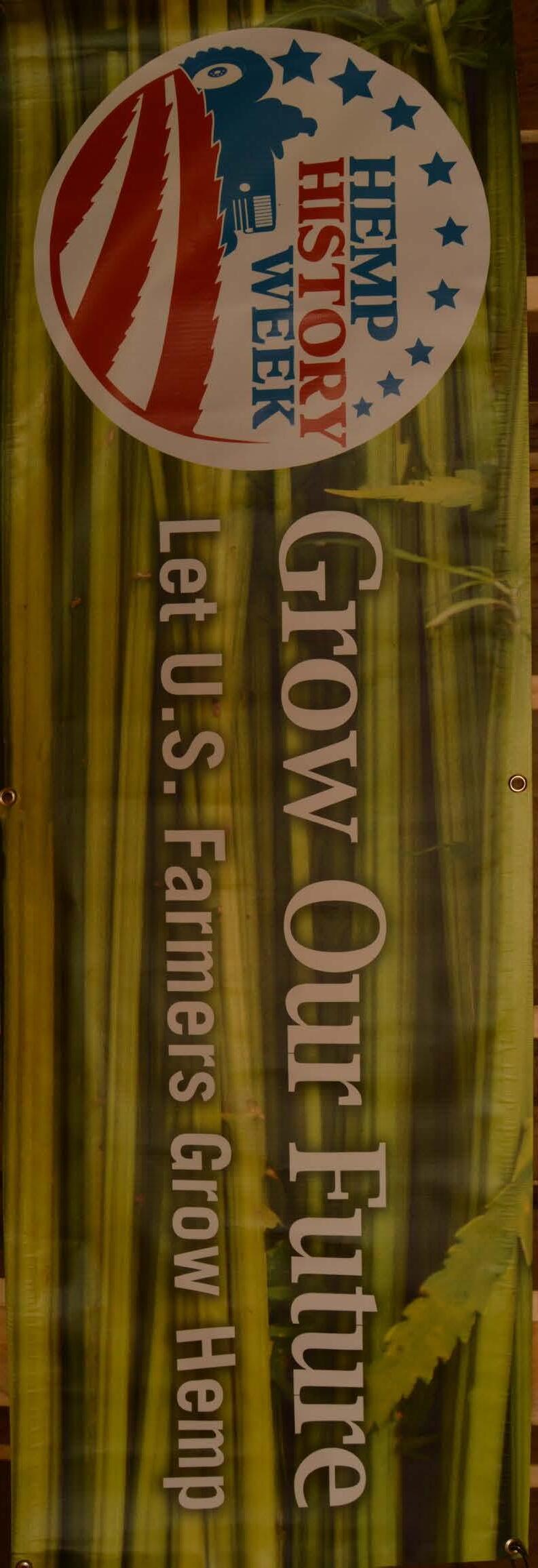
ANNIE ROUSE: Donating is always essential to any non-profit, but sharing what we do is also highly beneficial. We’ve hosted all kinds of events, some more successful than others. If you’re interested in hosting an event similar to what we’ve done in the past, reach out and we can help facilitate it to the best of our abilities. We are all in this together, and we should act like it. That means putting differences aside and supporting each other because in the end, we are supporting the plant, and that’s why we are all here.
For more information on how to get involved, visit friendsofhemp.org, @friendsofhemp on Instagram or contact wearefriendsofhemp@gmail.com.
68 Let’s Talk Hemp @ NoCo7 Digital Magazine

The Magic of Mushrooms: NoCo Introduces It’s First Mushroom Exhibit!
By Neha Mulay
In an exciting leap forward for the growth of psilocybin, this year’s NoCo conference will host its first ever educational mushroom exhibit. In Summer 2019, Cannabis World Congress and Business Expo in New York featured a hemp house with a ceiling made of mushrooms. The Mushroom Pavilion at NoCo, however, will be the first education exhibit dedicated solely to mushrooms at a major industrial conference.
The Mushroom Pavilion exhibit will bring together a variety of companies, educational groups, and nonprofits all geared toward educating the public and raising awareness regarding the various benefits of mushrooms.
According to Melanie Rose Rodgers, a key player in the creation of the exhibit, the Mushroom Pavilion will feature the Fort Collins Mycological Society, professors from Colorado State University, the Society of Psychedelic Outreach Reform in Education (SPORE), and a company called Colorado Kosher, known for its tinctures featuring lion’s mane extract as well as a soil company which uses mushrooms in regenerative soil. The Mushroom Pavillion will also feature the Zendo Project, a partner of the Multidisciplinary Association of Psychedelic Studies (MAPS)
An 11-person council is working directly with the city of Denver and the mayor’s office, including harm reduction advocate Sara Gael Girón, to assess the efficacy of the new decriminalization policy. In May 2019, Denver became the first city in the US to decriminalize possession and cultivation of psilocybin mushrooms. Decriminalize Denver is the organization that was instrumental in the passing of the initiative in 2019. The focus was on decriminalizing psilocybin, which is a compound found in certain mushrooms. Prior to decriminalization, psilocybin was classified as a Schedule 1 substance. In fact, Rodgers played an essential role in the passing of the Initiative 301 Campaign.
She was part of the six people from Denver County that petitioned the city. A large aspect of the suc-

cess of the campaign was its reliance on evidence such as John Hopkins University studies as well as the FDA’s classification of psilocybin as “breakthrough therapy” status. Therefore, there was little resistance from the public regarding the initiative.

The campaign also received support from the Denver District Attorney’s Office as they are open to and looking for new ways to treat mental illness. The health benefits of psilocybin mushrooms are increasingly being recognized.
According to Rodgers, “Psilocybin and psychedelics in general have a way of addressing trauma. Your trauma may come up. That’s just something that I think as Americans, we’re just so used to band-aiding, we put bandaids over our trauma, we try to heal it with other things. We don’t ever go to the root of [our issues] and so psychedelics and definitely psilocybin help with, addressing it and facing it, whether you like it or not.”
The dialogue around mushrooms and their benefits is only growing. The film Fantastic Fungi, which was released in September 2019, is a film which aims to educate and amaze audiences regarding mushrooms, including psilocybin and psychedelic mushrooms. The film’s premiere in September 2019 was sponsored by Decriminalize Denver, while the world will celebrate Fantastic Fungi Day on March 26, 2020 with worldwide VOD and streaming screenings.
In addition to mental health, mushrooms also have vast potential in other arenas as well. Companies such as Ecovative Design use mycelium, which is the root structure of mushrooms, to create materials. Ikea is planning to use these biodegradable, eco friendly materials as part of their packaging, which can decompose in a garden within a few weeks. Another company Myecoworks have created a material entitled Reishi, which is a mushroom based high end leather product.
There has been a tremendous amount of growth and progress in the mushroom industry. The Mushroom Pavilion exhibit marks the official recognition of this growth and will undoubtedly contribute to several more exciting developments in the years to come!
THE SUPERIOR SOLUTION TO MCT


Our new V-ONE™ Hemp Heart Oil has a mild flavor, is U.S. grown, organic and non-GMO — and it's the perfect carrier oil for your CBD products.

ONE MIGHTY SEED.






72 Let’s Talk Hemp @ NoCo7 Digital Magazine
GOOD-FOR-YOU INGREDIENTS MADE FROM
VISIT US AT BOOTH #401 TO LEARN MORE OR REQUEST A SAMPLE AT
NEW! NEW!
WINNER OF THE 2020 HEMP INNOVATION CHALLENGE™

Cleaner
A World Leader in Clean Energy: Meet New Holland Agriculture
By Neha Mulay
New Holland Agriculture is a prominent agricultural equipment and technology company with a 125-year history in the global market. They pride themselves on being on the forefront of all innovations that will help farmers and feed communities around the world. The team took some time to speak about their excitement in entering the hemp industry, what the plant will bring to domestic and international agriculture, and what’s next for this legendary company.
HONEYSUCKLE MAGAZINE: What is your mission?
NEW HOLLAND AGRICULTURE: New Holland is a world-leading equipment manufacturer working alongside farmers to provide solutions, improve productivity and efficiency, and help their businesses succeed. To support the growing hemp industry in North America and around the world, New Holland is leading the charge in equipment testing for a variety of hemp applications. We are in the field alongside growers, universities, and advocacy groups learning, testing, and optimizing our equipment to suit your needs.
HS: What excites you most about the hemp industry and agricultural technology evolving together?
For 125 years, New Holland has been a leader in agriculture. We’ve pioneered many industry firsts, and we recognize the unique opportunity of a viable new crop introduction as another opportunity to demonstrate our strengths in innovation.
We know that the traditional agricultur al production culture is more open to technology and innovation than ever before. Hemp is making its re-emergence as an industry at the same time, so the two are poised to have tremendous growth together. We need to understand the ways we can improve efficiencies, understand the crop, and use technology to create the pathway to move forward. For example, hemp will likely become a heavily legislated crop, so technology that can enable data collection and storage is vital to the industry to remove the hurdles that pro ducers may face.
HS: How does hemp tie into New Holland’s many other socially conscious initiatives?
In 2006, New Holland established its Clean Energy Leader platform, which prioritizes active promotion and development of opportunities for renewable fuels, emissions reduction systems, and sustainable agricultural technology. New Holland offers the farmers of today and tomorrow the
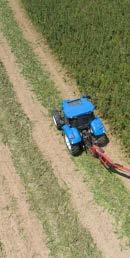
74 Let’s Talk Hemp @ NoCo7 Digital Magazine
widest choice of solutions that improve efficiency and productivity while also respecting the environment. As a renewable resource that can take the place of plastics, metals, concrete, and many other synthetic materials, hemp is a bio-friendly choice that supports our sustainability mission.
HS: Do you see significant differences between the ways that countries approach the use of hemp as a crop/ fiber/manufacturing tool?
There will always be differences in the ways farming is approached, depending on location, soil condition, weather conditions, etc. Hemp is unique for its multitude of uses, and for that reason we believe there will be many unique ways its produced, packaged, and processed.
This is the first year that New Holland is participating as a NoCo Hemp Expo sponsor. What made the company get involved with NoCo, and why do you believe it is an important conference for the agricultural industry?
Over the last decade, New Holland Agriculture has researched and tested our equipment in hemp applications around the globe. Due to recent changes in legislation, we have the opportunity to apply our equipment knowledge to the North


American market.
NoCo Hemp Expo provides us the opportunity to meet with members of the hemp industry across the supply chain, showcasing our solutions as an agricultural equipment manufacturer with products uniquely suited for challenging crop conditions, similar to harvesting hemp.
How will your equipment and technology most impact the hemp space in 2020?
New Holland is partnering with university researchers, engineers and farmers to develop equipment solutions for this evolving industry. After rigorous testing, we have determined that much of our current offering is well-suited to harvest and package hemp crop. We will continue to educate customers on the best settings, adjustments and parts for this equipment for the best results.
We will also continue to work in partnership with the National Hemp Association on our “Pushing Progress Together” initiative to support farmers in building America’s newest sustainable and versatile commodity crop through educational outreach.
Let’s Talk Hemp @ NoCo7 Digital Magazine
Energy
LEGAL LABYRINTH
FRANK ROBISON NAVIGATES HEMP REGULATION
Interview by Jaime Lubin, written by Elise Bortz
Frank Robsion is driven to make sense in a world run on the incomprehensible. Today he is among the most internationally-recognized legal experts in the hemp and cannabis industries, his insights into regulation of business and agriculture contributing to the creation of pioneering actions in the sector. And, he says, from a young age he was always conscious of the social hypocrisy that allowed harmful substances such as alcohol and cigarettes in public, but stigmatized cannabis –which Frank grew up hearing from the music and words of Peter Tosh could help with glaucoma and other medical conditions – as taboo. “No one was ever saying anything bad [about cannabis] except that it was bad,” Frank notes. This gray area of inconsistencies would ultimately drive Robison into the professional cannabis space, where legislation met his own progressive agenda. It took a somewhat circuitous journey, but looking back it’s no surprise that Frank’s wisdom has become so sought after in the hemp industry, which unites his greatest passions of environment, social justice, and emerging business.
Initially inspired to become an environmental lawyer after reading Robert Kennedy Jr.’s exhortations that the world needed more such advocates, Frank moved to Spain, where environmental regulation seemed to be ahead of American legislation. However, upon starting a family and surveying the possibilities for the burgeoning cannabis industry in Colorado, he returned to
the United States in 2012. Settling in Boulder, Frank began working for the University of Colorado as Special Assistant Attorney General, where he coordinated with the state’s Department of Agriculture to establish innovative methods for students to cultivate hemp research as Colorado’s industry grew. Eventually he would join a prestigious law firm in the greater Denver area as director of its hemp practice, before his entrepreneurial spirit took over, enabling him to establish the Frank Robison Law Group in Boulder, where he specializes in hemp and cannabis law for domestic and international markets.
Though Colorado was one of the first states to elicit federal funding for hemp pilot programs, Frank observes that the federal government’s generally conservative attitude toward cannabis did not at that time nor to the present day allow the research to go nearly as far as it should. Even now that the 2018 Farm Bill has nationally legalized hemp, classified as the varieties of cannabis which contain 0.3 percent or less of THC compounds, Frank says the regulators are not encouraging the growth that we should reasonably be seeing.
“I don’t see any state right now as taking a really strong leadership position with respect to working with the United States Department of Agriculture or [even] working together with the other states,” he notes. Observing that the Department of Agriculture’s interim final rules on the bill are actually “choking the industry,” Frank goes on to say that the 2018 Farm Bill “could and should be construed definitively as a Congressional intent to establish a thriving hemp market in the United States – and unfortunately [the regulators] have done the exact opposite… The Department of Agriculture made such a regressive statement with the interim final rules [that] we’re still coming to grips

76 Let’s Talk Hemp @ NoCo7 Digital Magazine
with how to undo [them] or put the 2018 Farm Bill on the track it should have been in the first place.” Also compounding the hemp industry’s obstacles is the continued clash between stakeholders in the space and the United States Food and Drug Administration. Though hemp companies have been thriving in the natural products market, with demand for hemp and CBD-based skincare and ingestibles booming, conflict over regulation has created a difficult environment for these businesses to legitimize themselves on national and international levels. Professional organizations such as the United Natural Products Alliance, which just started allowing hemp and cannabinoid companies as members in October 2019, have expressed concern before that many such companies may not necessarily be abiding by regulations as set forth by the FDA and other federal lawmakers.
Companies, stakeholders, and investors in the industry are struggling to navi gate the terrain without clear guidance from the FDA, which Frank asserts is a huge challenge. “Stakeholders should be conducting research. They should be doing observational research… They should be asking for grants from the NIH [National Institutes of Health]. They should be creating data.” Because of the conflicting directives from all sides, he adds, both the FDA and the stakeholders who don’t push for research “are preventing the growth of this industry. They’re restricting capital. They’re making people that want to inject capital into it, nervous. They’re creating confusion on all levels of government about what is and what isn’t illegal.”
In Frank’s eyes, the biggest problem is misaligned priorities: “The FDA exists to prevent adulterated and misbranded food and drugs from entering U.S. commerce… And they’re put in a position where they have to take a literal interpretation of the legal landscape, and they’ve taken an interpretation that is quite
conservative… So on the one hand you have stakeholders that misunderstand the role the FDA plays, and then on the other hand you have the FDA taking [its responsibilities] to an extreme that’s harming the industry because there are so many companies out there trying to do the right thing. But according to the FDA they can’t do the right thing, because if you’re cultivating a hemp crop and producing a tincture or food product, [by the current laws] your product is already adulterated.”
The legislation surrounding hemp cultivation is flawed, Frank believes, because the simple act of processing for extraction classifies the plant as illegal. During the process, the plant’s percentages of THC both rise and falter back to a legal level. In order to refine the hemp, processors remove extra leaves, stems, and other plant material, causing a spike in cannabinoids on a parts per million basis and creating what is legally classified as marijuana. As Frank describes, “You take in lawful hemp flower, process that lawful hemp flower, then the THC levels spike, and then all of a sudden you have marijuana in your hand.” This nonsensical legislative gap restricts the natural processing lifeline of the product, which, when adhered to, criminalizes hemp processors. Such loopholes, Frank claims, suffocates the potential of the industry.
Frank suggests increasing the legal level of THC in hemp to at least 1 percent to avoid criminalizing farmers and processors, and further augmenting the standard deviation to allow for more leeway in practice. These changes, he claims, would grant farmers and stakeholders the right to grow far more compliant hemp crops, and in turn provide a foundation for a more robust industry.
Internationally, the United States is playing catch-up to other countries that have approved hemp legalization on a federal level such as Brazil, Colombia,
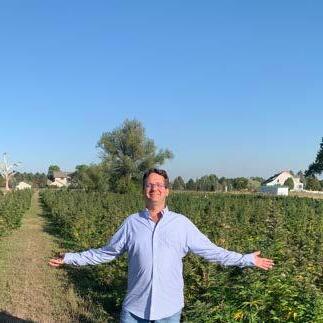
77 Let’s Talk Hemp @ NoCo7 Digital Magazine
Ecuador, Switzerland, Thailand, and Uruguay. All these nations have established the 1 percent THC cutoff; with more leeway in their programs, their farmers are encouraged to produce materials used in a wide variety of markets. And with so much emphasis and scrutiny being placed on ingestible products and CBD in the American markets, precious little time is being spent developing resources for farmers and manufacturers in the United States to investigate hemp for applications in construction, biofuels and bioplastics, fiber, and other uses.
Yet even with its adversaries, Frank states confidently that the hemp industry is here to stay. Recently appointed to the board of directors of the national Hemp Industries Association, he has primari ly dedicated his efforts to United States Department of Agriculture’s adjustment of its position on the interim final rules, in addition to starting conversations on what helps and hinders American hemp farmers. In the future, Frank hopes that United States legislators will give farmers a better opportunity to grow federally compliant crops. “And then from the com pliant crop, you could take the materials and use them in a large variety of different ways.” The possibilities of hemp are vast, but this incredibly dynamic sector of business has yet to come to fruition. This year Frank has expanded his practice through partnering with attorney Roxane Peyser; they are both focused on conducting international business in the hemp space. “We enjoy breaking barriers compliantly with clients,” Frank enthuses. He feels the roles he’s held throughout his career now synthesizing at this moment in time – among other developments, several of his colleagues from the University of Colorado have resurfaced as his clients. Through his unique position, Frank embraces the opportunity to influence the industry positively and give back to the Hemp Industries Association as well.

Ultimately, he concludes, the hemp industry can only evolve when we all collaborate on common goals. “The FDA is in a very difficult position [with hemp and CBD] where it has to capture horses that are figuratively out of the barn… And the industry needs to be working, in my view, to help it understand that these products are going to help the citizens of the United States and the world… Trying to find these common bridges between their mandate and the industry is the ideal approach, [and will] inevitably bring us to a thriving market in the United States.”
Working with the system? It seems odd for the man who’s built his understanding of taboo based on rebellion – but at the end of the day, Frank Robison is an advocate for what benefits the wider world. We can all agree on that, and at least it’s a pretty good start.
78 Let’s Talk Hemp @ NoCo7 Digital Magazine






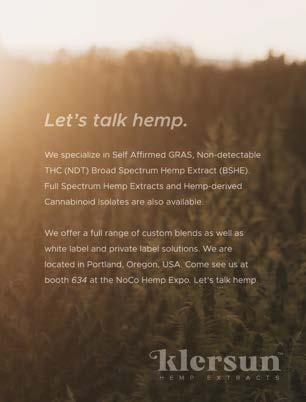

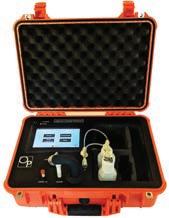
$500/lb Buy One Get One! NOCO SEED SPECIAL* Located in Brighton, CO www.HorseFarmHemp.com STOP BY BOOTH 810 0.3% THC test CBD Analysis Easy to use Results in minutes Portable hemp compliance.
Regenerative
Regenerative Practices Behind Organic Hemp Production: A Conversation with Sub-Zero Extracts
By Neha Mulay
Sub-Zero Extracts is the first hemp extract company to obtain USDA Organic Certification. Focused on producing the highest quality organic hemp extracts available, their fully-integrated operations, regenerative agricultural practices, and sub-zero temperature extraction processes enable them to pioneer major innovations in the industry. Founder and CEO Dexter Rice provided us with valuable insights on hemp production and cultivation as well as the commitments to sustainability and quality that make Sub-Zero’s products some of the most reputed on the market today.
HONEYSUCKLE MAGAZINE: What is the mission of Sub-Zero Extracts?

DEXTER RICE: Our mission is to help our clients create the highest quality hemp/CBD products on the market, through our Exceptional Spectrum Extracts, as well as our Organic toll extraction and manufacturing capabilities.
Sub-Zero is especially distinguished in the hemp space because of its USDA Organic certification and commitment to regenerative agriculture.
HS:Why do you believe regenerative practices are so important to our planetary and economic futures?
We use several regenerative practices. One of the most important prerequisites to creating highly therapeutic hemp extracts is cultivating hemp in a thriving soil ecosystem. Healthy living soils create plants with higher diversity and levels of “secondary metabolites”, [which are] the active compounds we treasure for their therapeutic value. The wonderful thing about regenerative agriculture is that not only does it create the most potent hemp plants, but it works to heal our planet in the process!!
We ensure reduced/conservation tillage to preserve soil structure, soil carbon and soil organic matter, to maintain beneficial microbial populations, and to prevent oxidation of soil nutrients and release of CO2 into the atmosphere. [Other methods we use include] cover crops/constant cropping to
HEMP
Organic HEMP
always keep living roots in the soil, harnessing the sun’s energy, feeding soil microbial populations and storing valuable organic matter/carbon in the soil; [and] zero usage of herbicides or pesticides to naturally balance insect populations and prevent chemical contamination of the environment. [We utilize] manures and compost to replace nutrients removed from the system by harvested crops, to add beneficial biology, and to provide an optimal habitat for microbes. We [cultivate] a diversity of plant species to encourage thriving microbial, insect, and wildlife populations, which harmonize to create the healthiest soil, and thus the healthiest and most therapeutic hemp. Furthermore, we implement sub-surface drip irrigation to conserve water and prevent erosion and runoff.
In summary, our approach is to study and mimic the systems nature has used to masterfully sculpt our magnificent planet for millennia. Our experience has shown that truly holistic regenerative farming contributes immensely to the quality of our Hemp/CBD products.
HS: How do you help protect and restore the local eco-
tems Sub-Zero works with?
sys-
These regenerative agriculture practices are incredibly important to the future of our local community, as well as our planet in a myriad of ways. [For example], water conservation; Sub-Surface Drip irrigation reduces water usage by up to 50%, which helps conserve this scarce natural resource. [Additionally], they help counter land and water pollution; zero application of herbicides, pesticides, or chemical fertilizers completely eliminates these harmful substances from our local environment, which would otherwise decimate soil microbial populations and pollute our water supply.
Carbon sequestration is another essential benefit of our procedures; constantly keeping green growing plants maximizes the amount of Co2 removed from the atmosphere and carbon stored in the soil. Keeping soils covered and reducing tillage are also important aspects of this; tillage invariably oxidizes massive amounts of stored organic matter/carbon and releases it as Co2 into our atmosphere.
[Also], the benefits of increased water infiltration and holding capacity should not be under- em-

phasized. Reducing tillage and maintaining live plants stimulates microorganism growth in the root zone, which forms natural “glue” (globulins) which helps create soil aggregates. This generates the “cottage cheese” appearance of healthy soil, and it allows water and air to infiltrate into the root zone and be held there in large quantities. Intensive tillage destroys soil aggregates/structure which creates problems with soil runoff, soil aeration, and lack of adequate water for crops or soil biology, especially during increasingly challenging climatic conditions. Furthermore, climate scientists suggest that disruption to weather patterns is being exacerbated by lack of water infiltration into soil, leading to warmer surface temperatures and a cascade effect resulting in increased climatic temperatures.
[Finally], healthier crops equal healthier humans and animals. Our yield-driven agricultural economy has been forced to continually cut costs without attention to quality or nutrient density. Well executed regenerative agriculture creates holistically healthy soils, plants, and animals, resulting in healthy humans. In our case, the therapeutic power of our hemp cultivars is multiplied through our practices, which allow the plants to generate significantly higher levels of active compounds.
HS:Why is extraction such a crucial part of the hemp industry?
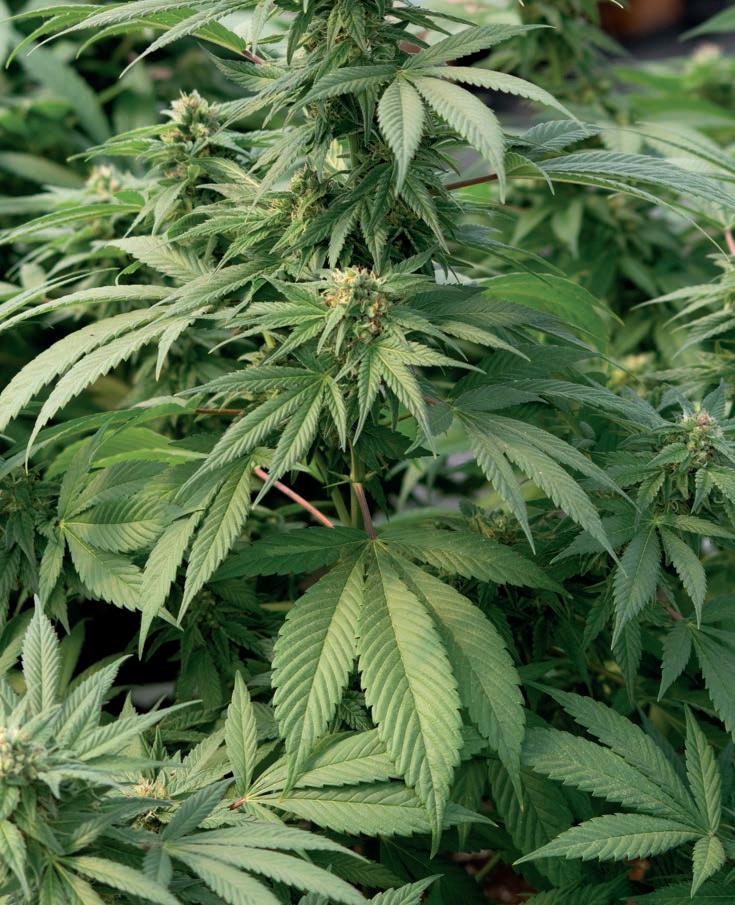
Extraction is crucial because it is the link between plants and products. Ideally, it is a process which harnesses and preserves all of the desired components of the hemp plant, making them easier and more convenient to utilize therapeutically.
HS: The name Sub-Zero comes from the special low-temperature extraction processes and winterization techniques you use in hemp cultivation. How do these processes affect the nature and quality of your products, and why is this better for the final product’s effectiveness?
Our extraction process has been carefully tuned to holistically harness the full spectrum of active components. In our opinion, common alcohol extraction processes are conducted at either too high or too low of a temperature, and are almost
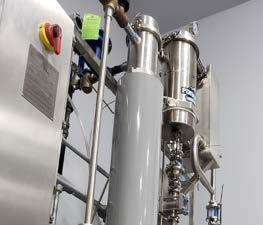
never quick enough to produce optimal quality. Our experimentation has yielded the optimal tem peratures and times required to harness the com plete spectrum of the hemp plant. Another critical opportunity to preserve or destroy therapeutic content lies in the removal and distillation of our organic ethanol. Deep vacuum distillation allows us to be uncompromising about low evaporation temperatures and short residence time, preserving every bit of valuable actives.
HS:What new products and innovations will you debut for 2020?
We are very excited to be opening our Certified Organic facility to toll extraction and product manufacturing by offering turnkey organic solu tions to the hemp industry. As far as product innovation, we are most excited about our new Certified Organic Water Soluble Extracts. This allows our customers to take their water-based formulations to a new level of efficacy, while also achieving organic certification.
HS: Sub-Zero has been a long-running NoCo Hemp Expo partner.What do you love most about your re lationship with NoCo, and why do you believe it is an important conference for the hemp industry and other industries overall as hemp becomes more mainstream? NoCo has been a fantastic partner to us in our growth over the years. [Founders and producers] Lizzy [Knight] and Morris [Beegle] are wonderful people on an extremely important mission, and we are honored to take part. NoCo has been a driving force of legitimacy and public attention for the hemp industry, and their array of other events continue to spread awareness and add legitimacy.
82 Let’s Talk Hemp @ NoCo7 Digital Magazine
Images © Sub-Zero Extractions
At S u n b e l t H e m p , we have a team of people with over 100 collective years of passion and experience within the agricultural industry and 30 years in seed breeding/growing Cannabis Hemp. Our varieties are bred from European Genetics and have been farmed at scale in the USA
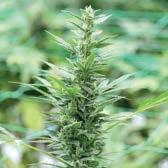

Why fly coach when you can travel first class?
GOLIATH
MED/HIGH CBD
YIELD PER PLANT: UP TO 7.5LBS
GERMINATION 99% | FEMINIZATION RATE: 99.9%
MED/HIGH CBD
YIELD PER PLANT: UP TO 5.5LBS
GERMINATION 97% | FEMINIZATION RATE: 99.9%
TITAN
MED/HIGH CBD
OLYMPUS
YIELD PER PLANT: UP TO 6LBS
GERMINATION 99% | FEMINIZATION RATE: 99.9%
PEACHGOLIATH
MED/HIGH CBD
YIELD PER PLANT: UP TO 7.5LBS
GERMINATION 96% | FEMINIZATION RATE: 99.9%
CERTIFIED GENETICS
Our genetics are certified through the GCIA (a member of AOSCA). Seed certification is to assure the consumer that the varieties have been tested and are true to their quality and description.
MED/HIGH CBD
YIELD PER PLANT: UP TO 6LBS
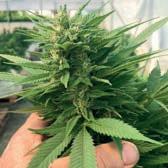
GERMINATION 96% | FEMINIZATION RATE: 99.9%
THEGRAIL
15-17% CBG
YIELD PER PLANT: UP TO 1LB
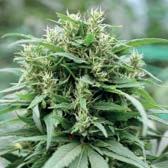
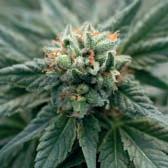
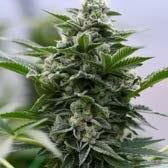
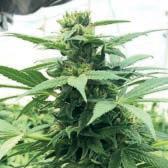
GERMINATION 99% | FEMINIZATION RATE: 99.9%
PLUGS/STARTS AVAILABLE
CONSULTING SERVICES
GROWING CLASSES
GROWING FACILITY TOURS
Find us at booth #830
Can provide third party Certificate of Analysis (COA’s), Germination, Feminization reports upon request. Results may vary based on farmer and farming conditions.
CERTIFIED GENETICSARETHEKEY |
WHO WE ARE
SUNBELTHEMP.COM EMAIL: SALES@SUNBELTHEMP.COM • TEL: (864) 689 1197
|
HERCULES
|
|
|
84 Let’s Talk Hemp @ NoCo7 Digital Magazine looking towards 2021 NoCoHempExpo.com The Most Comprehensive Hemp Exposition, Trade Show & Conference on the Planet! MARCH 25-27 2021 DENVER COLORADO PRODUCED BY PRODUCED BY Bringing Balance Back to Mother Earth SouthernHempExpo.com August 20-21, 2021 • Nashville TN 3
GREETING CARDS
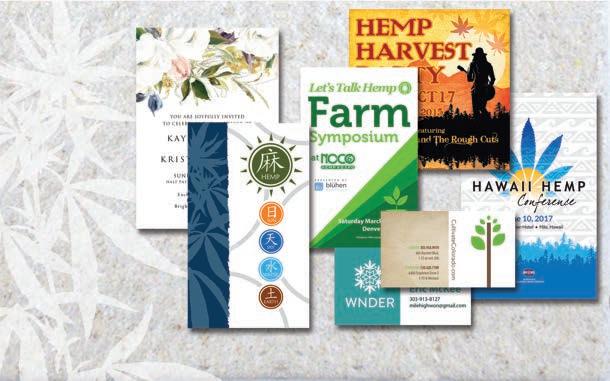
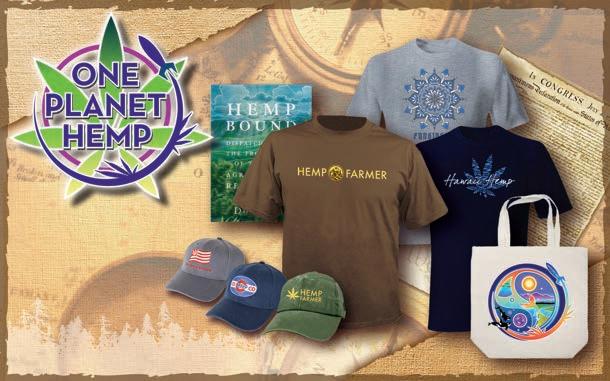
TreeFreeHemp.com BUSINESS CARDS INVITATIONS
FLYERS & HANDBILLS POSTERS BROCHURES
DESIGN SERVICES & more!
PAPER FOR THE PLANET PRODUCTS FOR THE PLANET COLORADO HEMP PRODUCTS - LOCAL - SUSTAINABLE OnePlanetHemp.com
Posters, Bags, Books, & More
Our paper is hemp-blended with post consumer recycled, is acid free, chlorine free, archival, and 100% sustainable.
Apparel,
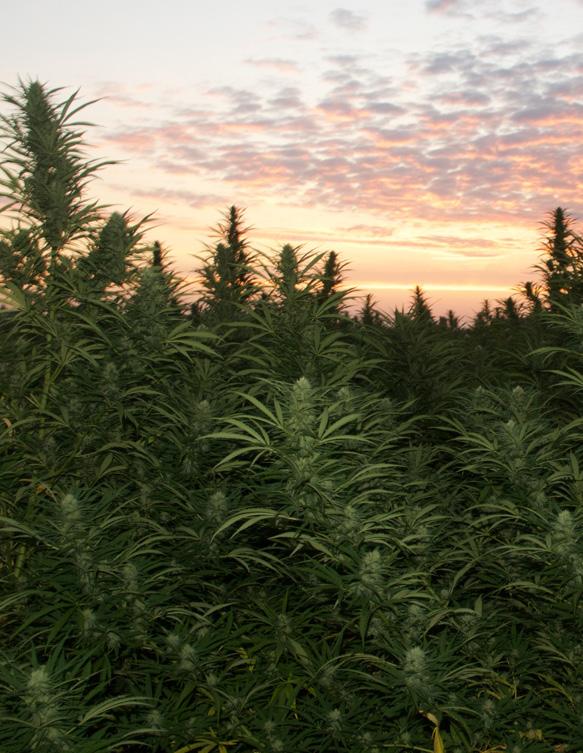
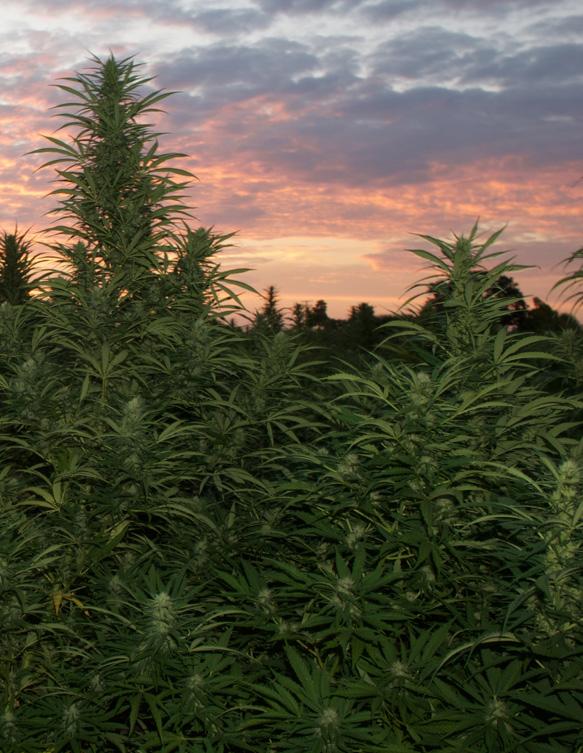
Is Hemp Paleo?

Is Hemp Paleo?
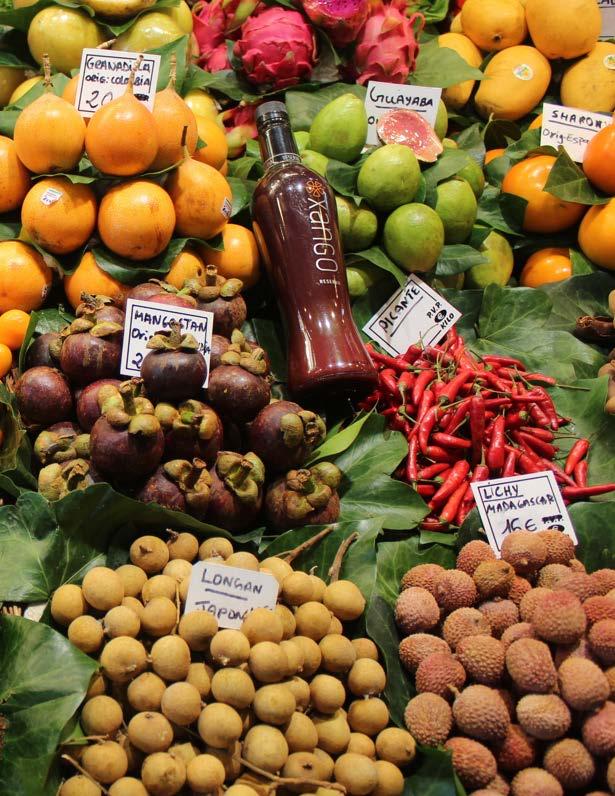
Is Hemp Paleo? Ancient History Suggests Yes.
By Morris Beegle and Steven Hoffman
Cannabis sativa, the plant that produces marijuana and its non-psychoactive cousin hemp, has been used by humans for more than 25,000 years. Here, we explore how hemp can be incorporated as an integral part of a healthful Paleo Diet and sustainable lifestyle.
Is hemp Paleo? Some Paleo purists have argued no. However, history suggests that ancient human ancestors – the Denisovans, living 160,000 years ago on the Tibetan Plateau – may have been among the first to discover the benefits of the Cannabis sativa plant for food, fiber and medicine - long before the advent of civilization and agriculture, thus qualifying it for consideration in a Primal Diet and lifestyle. Both marijuana and its non-psychoactive cousin hemp come from the cannabis plant, the origins of which have been traced back 28 million years to this central Asian region that lies at an elevation of 10,700 feet between the Himalayan mountain range to the south and the Taklaman Desert in China to the north.
According to other historians, during a short period of time at the end of the last Ice Age, Stone Age humans in Europe and Asia independently began using cannabis. Some studies suggest that cannabis entered the archaeological record of Japan and Eastern Europe at almost exactly the same time, between about 11,500 and 10,200 years ago.
“The cannabis plant seems to have been distributed widely from as early at 10,000 years ago, or even earlier,” said researcher Tengwen Long of the Free University of Berlin in Germany.

Long and his research team suggested that different groups of people across Eurasia independently began using the plant at about the same time, perhaps for its psychoactive properties but also as
a source of food and medicine, or even to make textiles and clothing from its fiber. They hypothesize that use of the plant spread rapidly as nomadic cultures on the Eurasian steppes mastered horseback riding, allowing them to cover vast distances and establish trading routes which would become the famed Silk Road several millennia later.
In the United States, hemp was produced and used extensively for centuries. It became an important material for everything from rope to sails to clothing. In fact, the original American flag sewn by Betsy Ross was made from hemp. Yet after existing for millions of years in nature, and proving to be of great use in numerous everyday applications, hemp and marijuana were made illegal by the passage of the Marijuana Tax Act of 1937. Stories abound as to why.
Today marijuana, with its intoxicating THC content, is still considered federally illegal in the United States under the Controlled Substances Act, although as of 2020 11 states - Alaska, California, Colorado, Illinois, Maine, Massachusetts, Michigan, Nevada, Oregon, Vermont and Wash ington - and Washington, D.C.have legalized the sale of recreational marijuana. An additional 22 states have legalized medical cannabis and de criminalized adult-use and possession.
Hemp, however, has had more federal success than its high-THC cousin. The plant can now be legally farmed, produced and sold throughout the United States as a result of the passage of the 2018 Farm Bill. Hemp, also known as industrial hemp, is defined as having less than 0.3% THC. At such minimal levels, hemp is not intoxicat ing; it cannot get you high. As a result of hemp’s historic legalization after more than 80 years of prohibition, it is now experiencing a huge renais sance. Good thing, too, as hemp has more than 25,000 recorded uses, including food, CBD (cannabidiol) for med icine, fiber for textiles, raw mate rials for bioplastics and building materials, and more.
90 Let’s Talk Hemp @ NoCo7 Digital Magazine
Given the explosive demand for all things made from hemp as a result of its renewed legality, some estimates predict the U.S. market for hemp products will surpass $20 billion in sales by 2024. And now that we can legally study and utilize hemp in the modern age, who knows what uses and applications we will discover in the future about this incredibly versatile plant?
Hemp: The Original Superfood
Fortunately for followers of the trending Paleo Diet, which emphasizes the consumption of foods that would have been available in the Paleolithic Age (meat, fruits, vegetables, nuts, and roots) while eschewing more dairy and processed foods, hemp has been consumed and used beginning at least as early as the Paleolithic era (approximately 2.5 million years ago). In modern times, foods made from hemp seed, banned as recently as 20 years ago in most grocery stores and many natural foods stores, is now considered a popular superfood. Hemp is included as a highly nutritious ingredient in many natural and organic foods and beverages, from shelled hemp seed, hemp seed oil and protein powders, to hemp veggie burgers and plant-based milk made from hemp seeds.

To be clear, hemp seeds contain little to no THC, the psychoactive compound in cannabis (0.3% - 1.5% on average). Small dry seeds with hard shells, hemp seeds are similar to sunflower or sesame seeds, with a mild, nutty flavor. They can be con-
sumed raw, sprouted or in powder form. Hemp seeds will not get you high and are perfectly safe to eat.
Dense in macronutrients and micronutrients, three tablespoons of hemp seeds provide 11 grams of protein (hemp seeds contain all the essential amino acids, providing a complete protein profile), 13.5 grams of fat (in particular, heart-healthy omega-3 essential fatty acids), 2 grams of carbohydrate, and 2 grams of fiber, and they are a rich source of iron, Vitamin E, phosphorous, magnesium and zinc. Whole, shelled hemp seeds, often referred to as “hemp hearts,” are an abundant source of soluble fiber, which can aid digestion, maintain healthy gut flora, and help manage blood sugar levels.
“Not bad for a little seed,” says Irena Macri, author of the Eat Drink Paleo Cookbook and Happy Go Paleo, on her blog Food Fit for Life. “This plant-based food is a fabulous source of protein, fatty acids, vitamins and minerals. Gram for gram, it fits the ‘superfood’ bill with a strong case. They’re a great seed for anyone on the Paleo Diet, the keto diet, or eating plant-based vegan or vegetarian diets,” she writes.
In addition, hemp seeds can serve as a great weight loss food, Macri
says. “I love foods that are high in protein, healthy fats and fiber for weight loss. These foods are essential to the diet because they promote satiety, keep you full and keep you healthy. Starting the day off with hemp protein or seeds mixed into a smoothie, 3-4 tablespoons atop a bowl of yogurt, or in an energy ball is a great habit that can promote fat loss because it keeps appetite at bay.”
Dr. Loren Cordain, Ph.D., founder of the Paleo Diet movement, advises consuming hemp in moderation, and offered this advice on his website: “Hemp in any whole food form, like any seed, should only be consumed moderately on the Paleo Diet. If you like the taste of shelled hemp seeds, you can sprinkle them over a green salad or add them to your homemade Paleo trail mix in addition to other nuts for a quick energy snack.”
“As to whether hemp is Primal or not, I’d put it (like other seeds) in a supporting role. It’s not main Primal fare, but, when eaten in its healthiest (fresh) state, it can complement a good Primal eating plan,” says Mark Sisson, author of Mark’s Daily Apple, a leading Paleo Diet blog. The creator of “The Primal Blueprint” for eating foods accessible to ancient humans, Sisson identifies Primal foods as meat, natural fats, and vegetables; he disqualifies grains and most nuts, claiming our ancestors would not have had access to these items as raw foods. Sisson points out that while hemp seeds contain a significant amount of omega-3 essentially fatty acids, it is primarily in the form of ALA (a standard fat stored and used for energy) rather than the preferred fatty acids EPA and DHA (which have additional benefits for physical and neurological health). That doesn’t mean it’s bad, Sisson asserts. “To hemp’s credit, the omega-6 content does include the healthier gamma-linolenic acid (GLA) and stearidonic acid, both of which are believed to be anti-inflammatory in nature,” he writes. Hemp seeds are unique in that they are the only edible seeds that contain GLA.
CBD,

92 Let’s Talk Hemp @ NoCo7 Digital Magazine
Paleo and the Endocannabinoid System
The big news about hemp today is the growing popularity of CBD, or cannabidiol, found primarily in the flowers of the hemp plant. A non-intoxicating compound, CBD is one of over 100 cannabinoid compounds that have been identified in cannabis. First discovered in 1940, CBD has been shown to have promising beneficial effects in helping with chronic pain, inflammation, neurological conditions, PTSD, sleep, anxiety and many other conditions. One review, published in the journal Neurotherapeutics, found that CBD also may be a promising treatment for people with opioid addictions.
Interestingly, CBD may play a positive role in high-fat, low-carb diets, says Martin Lee of Project CBD, a California-based nonprofit devoted to researching CBD’s medical applications and health benefits, in Alternet. Lee cites a study by Swiss scientist Jürg Gertsch, who researched the consequences of dietary changes brought on by agriculture, finding that the human body’s endocannabinoid system – an ancient biological signaling network that evolved in humans and other mammals – regulates numerous physiological processes, including intestinal function, glucose metabolism and stress response. A dysregulated endocannabinoid system, in turn, is implicated in metabolic and bowel pathologies and other diseases.
Gertsch’s thesis, Lee says, is that chronic metabolic disorders are rooted in “a mismatch between ancient genes and high caloric diets” that ensued with the introduction of agriculture. “The multimillion year evolutionary process during which nearly all genetic change reflected the life circumstances of our ancestors [was] suddenly disturbed” when “carbohydrate farming” supplanted the “hunter-gatherer diet rich in animal food,” says Gertsch, who maintains that “the interplay between diet and the endocannabinoid system” is key to understanding today’s obesity and diabetes crisis and its potential remediation.
With the surge of interest in the health benefits of CBD, there’s been a huge increase in the number of products with CBD added to them, from tinc-
tures and extracts to CBD-infused snacks, beverages and body care products. Researchers have found that CBD is safe and definitely safer than many pharmaceutical medications, however, the FDA is currently studying the CBD market. It has mostly left ethical players alone, but the agency recently sent warning letters to a number of companies making outlandish health claims for their products.
Given its potential anti-inflammatory effects, CBD may complement a Paleo Diet, according to the blog Paleo Leap. “From a Paleo perspective, CBD oil also comes under scrutiny for fat quality – and that goes double for any kind of CBD candy, CBD cookies, CBD drinks, and other edibles,” the blog says. Other than that, studies suggest that CBD is compatible with a Paleo Diet and healthful lifestyle habits. One worry for “low-carbers” might be “will CBD give me the munchies?” However, the good news, Paleo Leap reports, is that researchers found that low doses of CBD didn’t cause sweet cravings or increase liking of sweet foods. “There’s definitely a role for a few carefully chosen supplements to complement a base diet of nutrient-dense whole foods,” the blog advises.
Fortunately for followers of the Paleo Diet, hemp has been consumed and used at least since Paleolithic times. Look for CBD products that are certified organic, produced without additives, and lab tested by a trusted third party in order to be Paleo friendly.
From Climate Change to Sustainability, Hemp Can Save the World
As discussed thus far, hemp has significant nutritional and therapeutic benefits for both human and animal health and wellness. This plant, this agricultural crop, also provides an impressive amount of environmental benefits, from carbon sequestration, phytoremediation and soil building to reduced water usage and less inputs, including fertilizers, pesticides and fungicides, needed during cultivation. The mindset of most hemp farmers today, and the environmental position the hemp industry publicly espouses, is assisting in the
93 Let’s Talk Hemp @ NoCo7 Digital Magazine
organic and regenerative agricultural renaissance necessary in bringing balance back to ecosystems around the planet. All of these attributes are positives in the fight against climate change.
The environmental benefits of hemp do not stop in the field, but continue when used as a feedstock for the processing and manufacturing of industrial ingredients and materials. It has been suggested for decades that hemp has the ability to replace most products made with fossil fuels and timber/ wood, two industries that have a significant negative impact on the health of the planet. Biofuels, bioplastics, biocomposites, paints, varnishes and industrial cleaning agents can all be made from hemp and potentially displace product counterparts made by fossil fuels. Another reduction in fossil fuel reliance could come from hemp’s promising results as a supercapacitor material. Looking at hemp and its potential as a renewable resource that can be grown from the ground, annually and in mass, compared to the continued extraction of finite resources and the consequences that come with it, it seems reasonable to look at the possibilities of how to shift our focus away from a hydrocarbon to a carbohydrate or agro (new and renewable plant-based) economy.
The construction and building materials industry uses a significant amount of energy, fossil fuels, synthetic chemicals, and timber in ways that very measurably and negatively impact the environment. Hemp once again is a sustainable and renewable option that reduces impact and provides cleaner construction materials from hempcrete, insulation, paneling, flooring, particle board, plaster and roofing. These alternate or “drop-in” materials are rising in popularity today.
When we look at timber and wood for various consumer and commercial productions, deforestation that occurs as a result of the depletion of these resources, and the complications compounded with disrupted ecosystems, we need to seriously explore better alternatives that leave a smaller carbon footprint.
Hemp has been a primary feedstock for paper since the latter’s invention nearly 2000 years ago. It was only as recently as the end of the 1800s, and with the coming of the Industrial Revolution, when new machinery began to be developed for other feedstocks such as jute, cotton and wood. The rise of Captains of Industry (or Robber Barons, depending on perspective) in timber, fossil fuels and synthetics took the mass production of paper and built out processing and milling operations set up specifically to produce high volumes of their materials with little to no foresight on environmental impact. Hemp was seen as less profitable compared to the materials in the industries they wanted to build.
Fast forward 100+ years and the paper and packaging industries are leading contributors to harmful levels of dioxide into the environment. Dioxide is a compound found in chlorine, extremely hazardous, and one that has been necessary to process wood pulp by removing lignin to create commercial paper. Using hemp fiber as a feedstock for paper, packaging and various corrugated cardboard materials, hemp’s lower lignin content and higher cellulose content makes the addition of chlorine unnecessary and the use of hydrogen peroxide, a low impact alternative, much more viable in commercial paper milling.
What we’ve pointed to throughout this article is what we know today. The marketplace is excited about the possibilities of what can be done with hemp across the products spectrum now that the wall of prohibition is finally coming down after 80 years. Modern technology and innovation are moving into the hemp sector over the next several years and should provide additional product, replacement ingredient and environmental opportunities to industries and consumers far and wide.
# # #
Cannabis/hemp advocate and entrepreneur Morris Beegle is Co-founder and President of the WAFBA (We Are For Better Alternatives) family
94 Let’s Talk Hemp @ NoCo7 Digital Magazine
of brands, including the NoCo Hemp Expo, the world’s most comprehensive hemp-centric conference and exposition. WAFBA also includes Silver Mountain Hemp Guitars, maker of hand-crafted hemp guitars, cabinets and components; the Tree Free Hemp paper and printing company, and more. Spanning education, advocacy and entertainment, Beegle’s endeavors are pioneering and award winning, including NoCo Hemp Expo’s title as Hemp Event of the Year in 2017 and 2018 by the Hemp Industries Association in 2017.
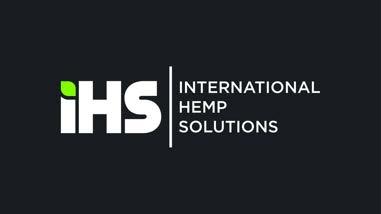
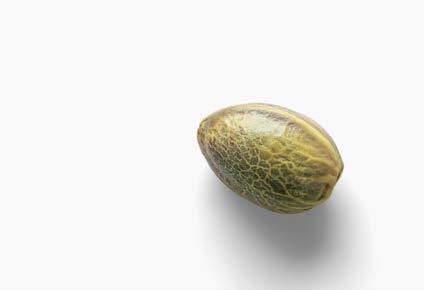
Steven Hoffman is Managing Director of Compass Natural, providing brand marketing, PR, social media, and strategic business development services to natural, organic, sustainable and hemp/ CBD products businesses. Compass Natural serves in PR and programming for NoCo Hemp Expo and Southern Hemp Expo, and Hoffman serves as Editor of the weekly Let’s Talk Hemp Newsletter, published by We are for Better Alternatives. Contact steve@compassnaturalmarketing. com.
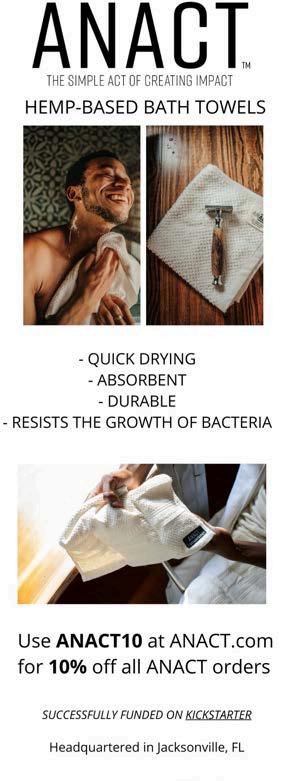
Let’s Talk Hemp @ NoCo7 Digital Magazine
Reserve Your Seed Today! 720-301-2404 | Info@BijaHemp.com
AMERICA'S #1 AOSCA CERTIFIED SEED PROVIDER
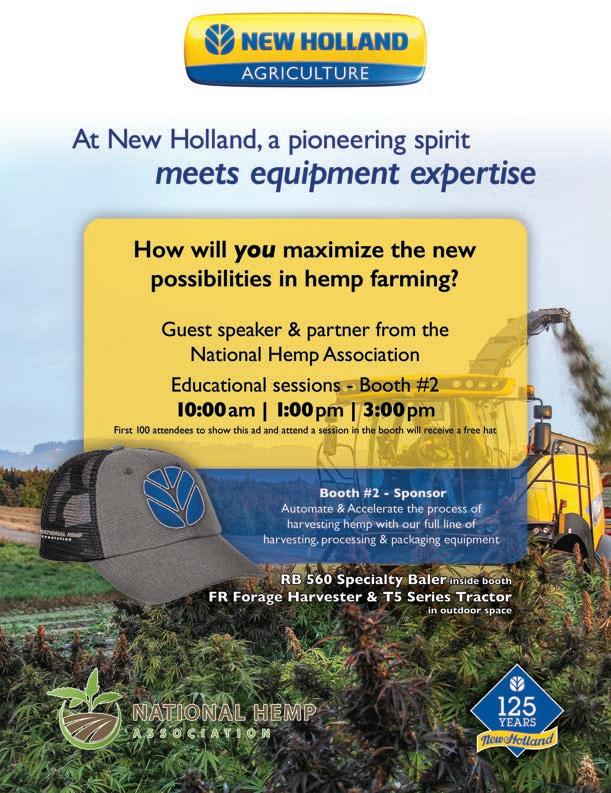
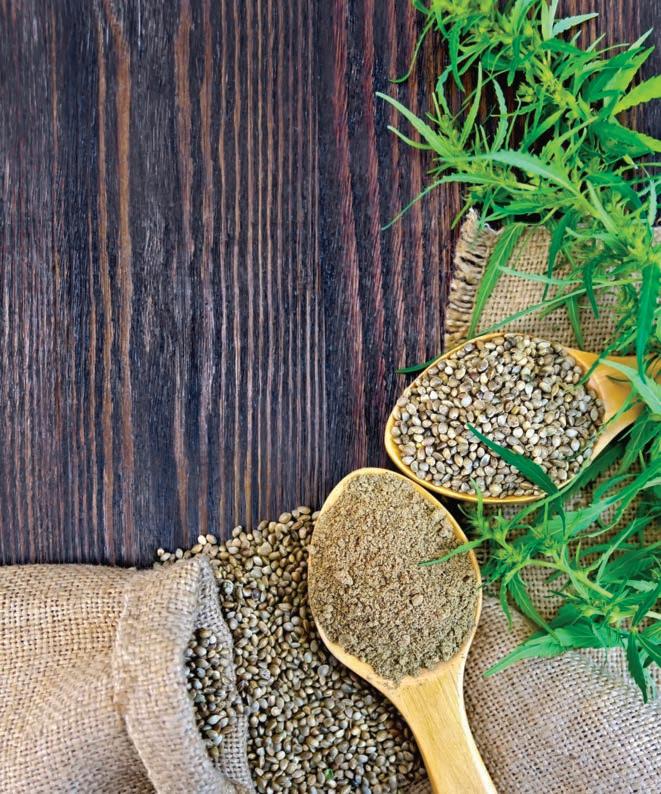










Freeze. Grind. Extract.
Liquid nitrogen can improve hemp-CBD quality and yield.
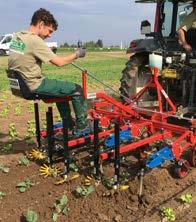

Put the ultracold power of liquid nitrogen (N2) to work in your hemp processing to improve CBD quality and yield, plus lower costs. Flash freezing your harvest prior to storage in a cryogenic N2 tunnel freezer can prevent mold and lock in the plant’s rich chemical content. During the grinding process, adding N2 to the mill or conveyor can eliminate heat and subsequent oil stickiness that causes clogging and downtime. And when cold extracting, N2 can be more cost-effective and efficient removing the desired oils.
See the power of liquid nitrogen in action in videos at airproducts.com/hemp or call us at 800-654-4567 (code 12557).


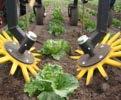


98 Let’s Talk Hemp @ NoCo7 Digital Magazine
Sales will only be made to customers who can show compliance with applicable state and federal laws and regulations. tell me more airproducts.com/hemp © Air Products and Chemicals, Inc. 2020 (43105) 717-984-8980info@kult-kress.comwww.kult-kress.com INNOVATIVE, EFFECTIVE, MECHANICAL WEEDING SOLUTIONS FROM THE SPECIALISTS! Camera Guidance Finger weeder DUO Next ‘G’eneration ARGUS

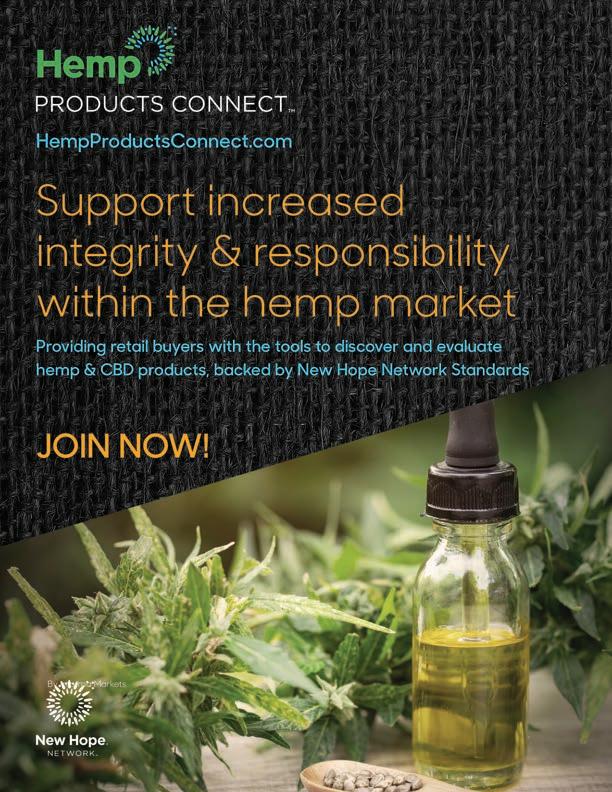


101 Let’s Talk Hemp @ NoCo7 Digital Magazine
Hemp’s Historical Fabulous Fashion Journey
By Heather Collins

FabulousHEMP
Cotton, silk, satin, and lace might be up against some strong competition in the next few years thanks to the growing use of sustainably produced hemp in textiles and fashion. Hemp, which is no stranger to the textile world, has actually been cultivated globally for centuries for fabric. In fact, according to the blog My Hemp Craft, hemp was a familiar and natural material used for rope during ancient Egyptian times and also as cloth for sails on ships throughout history, as it could weather storms crossing the seas (indeed, the word “canvas,” for the heavy cloth used in sail making, is derived from the word cannabis.)
Additionally, My Hemp Craft points out that while material evidence of hemp used in ancient times dates back only 9,000 years, pottery and metal objects with hemp rope-like impressions have been found at archaeological sites dating back as far as 26,000 BC. These findings suggest that our Paleolithic ancestors made use of the fibers of this versatile plant.
Sturdy and durable, hemp gained popularity in the United States when Presidents Washington and Jefferson both proudly grew hemp on their plantations. According to the blog THCINT. com/Hempology, it was once mandated that Americans were to grow hemp during the Colonial Era.
The hemp plant, when grown as a clothing material, grows significantly taller than other cannabis varieties, and it has noticeably longer fibers. The long fibers are what give hemp its strength when made into rope, clothing, bedding, or upholstery. Hemp fiber has been successfully made into shirts, handbags, shoes – you name it. It’s a strong cloth that is both appealing from an environmental and design standpoint, and hemp’s benefits outweigh other materials, such as cotton and polyester.
Research published by SEI (the Stockholm Environment Institute) indicates that cotton needs about 50% more water per season than hemp, which can grow with little irrigation. More than 70% of the global cotton harvest comes from irrigated land, which poses a risk for groundwater contamination. Hemp takes very little water and is strong enough to grow in fields without depleting natural resources.
According to Hempology, 42 hemp mills were built in the United States in 1941, primarily in the Midwest. Hemp was a popular commodity, and farmers were drawn to its appeal as a cash crop. Also, there was a sincere sense of patriotism by growing domestic plants versus buying hemp from abroad. Once the mills started production, hemp was revered as an innovative and cutting-edge product. However, in 1944 the government shut down the hemp mills, citing lack of needs due to “war purposes.” Essentially, those farmers who were growing about a million acres of hemp suffered financial despair, as they were expecting to reap a significant profit thanks
102 Let’s Talk Hemp @ NoCo7 Digital Magazine
to hemp’s bounty. Ultimately, the farmers had nowhere to turn to manufacture their crops due to the government’s orders to shut down.
Hemp in Everyday Fashion
FashionHEMP
Today, Patagonia, Inc. and popular fashion brands are taking note of the benefits of hemp, as it is more absorbent, and easy to blend with other fibers in clothing. In fact, Patagonia created a mini-documentary highlighting the history of hemp and its potential power to create soft, light, and breathable fabric. Thanks to the passage of the U.S. Farm Bill in 2018, eco-fashion brands realize the regenerative agricultural potential hemp has in creating more jobs domestically and sourcing U.S.-grown hemp for their clothing lines.
Iconic U.S.-based blue jeans brand Levi Strauss has been experimenting with hemp fabric by combining it into its cotton jeans for several years, as discussed with Business Insider. Product innovation teams at Levi’s indicate that they have been using hemp in blue jeans, but they still need time to truly ‘cottonize’ it and make it soft and appealing for everyone. With sustainability at its core, Levi’s developers acknowledge this process will take time to make hemp the softest, most durable textile that provides a good fit and a lasting pair of jeans.
Featured recently at a sustainable fashion runway show in Santa Monica, CA, Vital Hemp founder Ron Alcalay has long expounded the benefits of hemp fashion for everyday living. “Hemp’s come a long way and so has Vital Hemp,” he says on his website. “We intend to reintroduce people to the superior qualities of hemp by producing the most comfortable, healthy and sustainable hemp clothes possible. As vital members of the sustainable business community, we aspire to be a part of the groundswell…re-legalizing the cultivation of industrial hemp in the U.S.A. so that we can all benefit from the myriad uses of this amazing plant—for clothing, food, paper, fuel, and so much more.”
Even footwear is exploring the benefits of hemp, with shoe designers ready to go the extra mile by
utilizing the plant as its main fabric. Take it from year-old company DopeKicks, the first waterproof hemp tennis shoe. They believe their sustainable footwear is not only fashion-forward but also “the coolest, eco-friendly, super resistant and waterproof shoes accessible to everyone.”
After a long day, Jungmaven wants everyone to lay down in comfort to the soft, appealing cloud-like feel of hemp sheets, pillows, and blankets every night. The bedding brand uses sustainable hemp material to create luxurious products for a healthier future for the planet.
Interested in learning more about hemp’s journey into fashion? Be sure to join in on the fun for a hemp-centric Fashion Show at 7th Annual NoCo Hemp Expo, August 6-8, 2020, at the National Western Complex in Denver. Tickets are available at https://nocohempexpo.com/.
--
Heather Collins is a seasoned Public Relations professional who works closely with Compass Natural Marketing on lifestyle and hemp brands. Additionally, Collins has operated h | c marketing and communications, an independent project-based firm that provides strategic insight to clients within the natural products industry, including national trade associations plus, renowned leading health and wellness experts.
Hemp-based clothing brand Vital Hemp was featured on the runway at the Style & Sustainability Fashion Show in Santa Monica, CA, in December 2019, presented by the City of Santa Monica’s Office of Sustainability and the Environment, Lexus Santa Monica, and Sustainable Works.

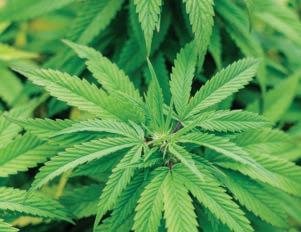


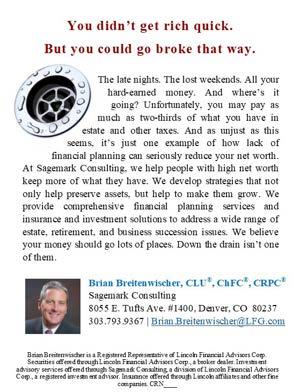


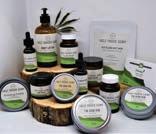


104 Let’s Talk Hemp @ NoCo7 Digital Magazine Pure Chromatography Sign up today to access Restek’s years of chromatography knowledge at www.restek.com/advantage ADVANTAGE See What It Can Do for You and Your Lab SALT CREEK HEMP





Friday, March 27 during the conference! YOUR COMPLETE TERPENES, FLAVORS & EFFECTS SOLUTION Our products are specifically designed to work with CBD and hemp products, including beverages and topicals, to deliver consistent and repeatable results. www.ExtractConsultants.com © 2020 Extract Consultants Visit Us At BOOTH 526 We’ll see you at NOCO in August 2020! Meanwhile, to help ease the pain of these crazy times, use the code NOCO10 for 10% OFF of your entire order at checkout. August 7th
By Winona LaDuke
She’s an amazing plant. You can learn a lot from a plant. For the past four years I’ve been hanging out with cannabis plants. I have a bit of a maternal streak which seems to translate well to animals and plants (children, I am not so sure), and I’ve been growing cannabis. That’s the plant’s name. We all say industrial hemp so that we are not demonized, and people don’t think I have a big marijuana farm out there by Osage. There’s apparently some “stigma” attached to cannabis. So, let me just say it loud and proud. I’m a cannabis grower.
Here are my thoughts four years into growing under a Minnesota state permit. The plant is not a slave, she’s an amazing teacher, and we got this, we just gotta figure it out. The Farm Bill opened the floodgates for “industrial hemp”, meaning a plant which will produce seed, flower, and stalk, and comes in less than 3% THC.

Minnesota issued seven permits in 2015; 550 in 2019. People acted like it was the gold rush. Just like the spooners and diggers, they all jumped in. As far as “hemp,” it appears that everyone planted as much CBD cannabis as they could, and they are sitting on it. There was this idea that everyone was going to make a million bucks off a plant. Well, that’s not going to happen. There are some people who may lose their farms in Kentucky, where they plowed up entire farms and put them into cannabis. That’s particularly ironic, because Senator Mitch McConnell, the architect of the industrial hemp component in the Farm Bill, really could have helped his team out a bit more. It’s like responsible cannabis farming, about the amount and intent.
Farming and love and sex.
Treat the plant well, and she will respond. The plant takes love and understanding. When I plant seeds, I develop a relationship with them. What it says on the packet is not what it says in your soil, or in the weather over the upcoming months. It’s sort of like a date, do some chit chat, see how you like each other and decide if you are going to hang out.
My Courtship
106 Let’s Talk Hemp @ NoCo7 Digital Magazine
Images courtesy of Winona LaDuke
Courtship of Cannabis
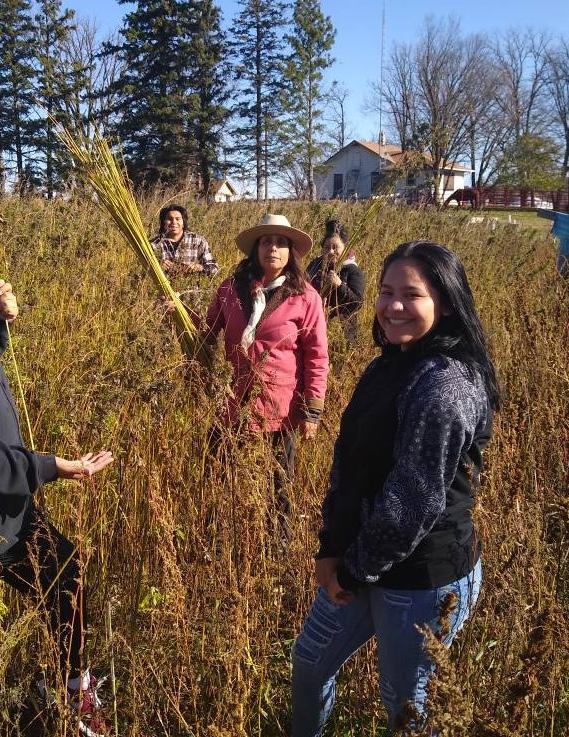
I swear to the Goddess that there are a whole bunch of guys who don’t want to date, they just want to plant with their big seed drills, harvest with their big combines, and get out of there. Think about farming and love and sex. You may not have the moves for this plant, buddy.
Some advice from me, the Anishinaabe farmer: Learn how to treat her right.
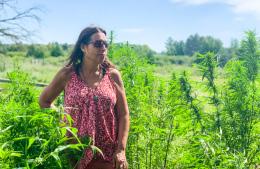
I grow two kinds of cannabis: fiber hemp and CBD cannabis varieties. I’m really careful that the female plants who are producing special magical medicines don’t meet up with any pollen from the males. That’s some life-changing stuff. The flowers are female. Go figure.
The hemp field across the road has males. I keep everyone separate. We study varieties best for our region. Minnesota used to have eleven hemp mills, and I just want to see them come back.
Those fields are both male and female, but let me just share something with you – the strongest plants for fiber processing are female. They are well-sexed females. They’ve had a wonderful time hanging out with the men and the pollen and they’ve made some great seeds and robust stalks. They don’t like their feet wet either. That’s one of the good things about hemp – it doesn’t take too much water, one of the many reasons it’s a superior textile to cotton. Add to that, the word cannabis is also the root word for canvas. Hemp has the ability to transform the textile and materials economy.
Female plants make all that magic, with of course a lot of good sex.
Male plants are some groovy guys too. That’s despite the fact they look all withered in the field, after having sex with thousands of females. They’ve had a good life. They also make pollen, and if you have a clean field, no pesticides, all full of plants having sex, you can make some bees and pollinators happy too. What’s wrong with that?
Now what we need is to work together to actualize the renaissance of hemp. Minnesota and North
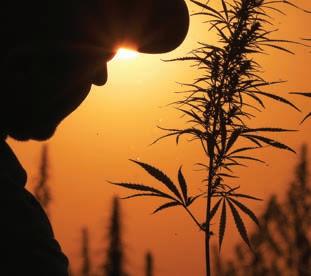
Dakota both have some good hemp research projects, but the medicinal marijuana program is limited. That should really be opened up. Prohibition will end soon, 11 states have legalized, and then there’s all of Canada. We might want to loosen up here in the North Country. The White Earth Reservation should look at this future for our people –from medical to textiles, she is a plant which most people want to grow. Our tribal members are very interested in cannabis.
The hold-up is processing. Seventy years as an illegal plant means that we are behind in processing. And, if we are going to rebuild an American economy, which produces goods, instead of buying them from China, we are going to need to figure out cannabis, together. We can’t use slave labor, and we cannot use a bunch of toxins on the fields. The plant doesn’t need any chemicals, it just needs love and good soil.
Cannabis can change our world. Treat her with respect, and she will be there for us. Court her well.
A version of this essay was originally published on Winona’s Hemp News.
Winona LaDuke is an internationally renowned environmentalist, economist, tribal elder, Water Protector, Harvard graduate, former candidate for Vice President of the United States, entrepreneur and hemp farmer. Winona also is owner of Winona’s Hemp and the founder of the Anishinaabe Agriculture Institute and Honor the Earth.
108 Let’s Talk Hemp @ NoCo7 Digital Magazine


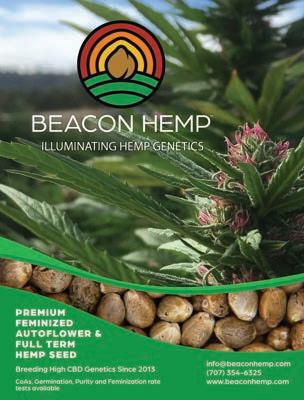

IAC-Intl.com 800-334-7431 | 913-384-5511 iaccorp@iac-intl.com Experienced Hemp Facility Designer, Constructor and Operator with 30+ Years Field Experience. BOOTH #907 America’s Premier Hemp Contractor

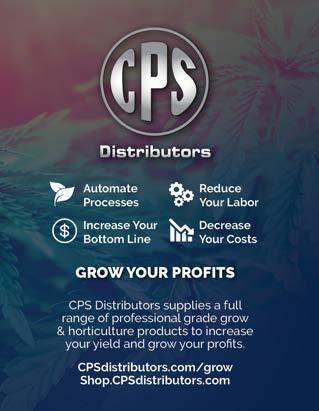
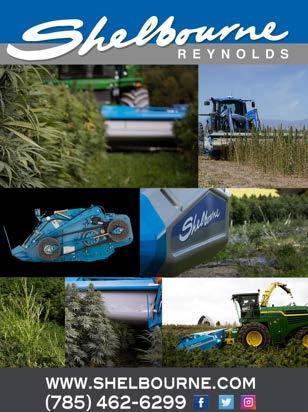
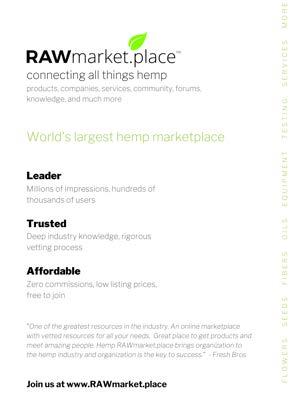


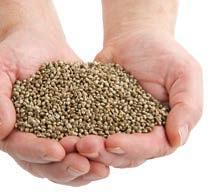
Certified Hemp Seed HE MP GENETIC S In ternat i ona l HGI pedigreed seed for planting www.hempgenetics.com Plant Genetics for the natural world Katani Grandi Picolo CFX-1 CFX-2 CRS-1



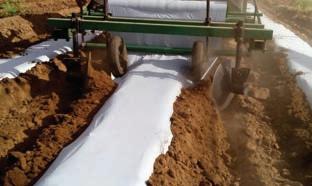




MADE IN THE USA Order today Phone 763.972.1101 Email info@organixsolutions.com Online www.organixsolutions.com Certified Soil Biodegradable Mulch Film Visit us at Booth #836 for pricing and orders!






114 Let’s Talk Hemp @ NoCo7 Digital Magazine Featuring Miss Uniiverse Canada, 2019 PRESENTED BY EnviroTextiles ...fabric for our future LLC MUSHROOM PAVILLION MUSHROOM PAVILLION PLANTS ZONE PLANTS ZONE MATERIALS ZONE MATERIALS ZONE EQUIPMENT ZONE EQUIPMENT ZONE SPA REJUVENATION SPA REJUVENATION HEMP FASHION SHOW HEMP FASHION SHOW EXPO HALL

115 Let’s Talk Hemp @ NoCo7 Digital Magazine Email us for more information at info@hempevents.org Free listings available Advertising opportunities available VISIT OUR EXTENSIVE LISTING OF HEMP RELATED EVENTS FROM AROUND THE WORLD


116 Let’s Talk Hemp @ NoCo7 Digital Magazine
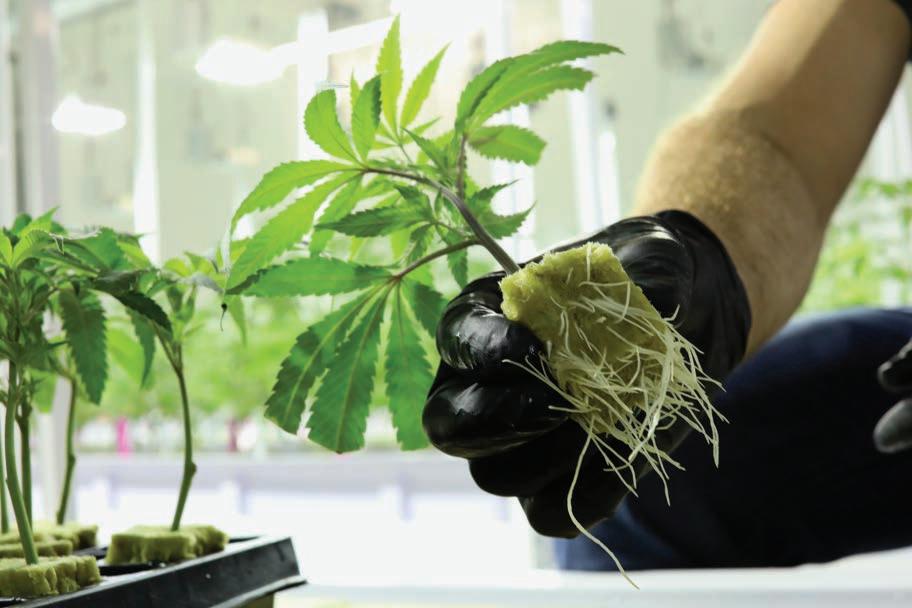

117 Let’s Talk Hemp @ NoCo7 Digital Magazine
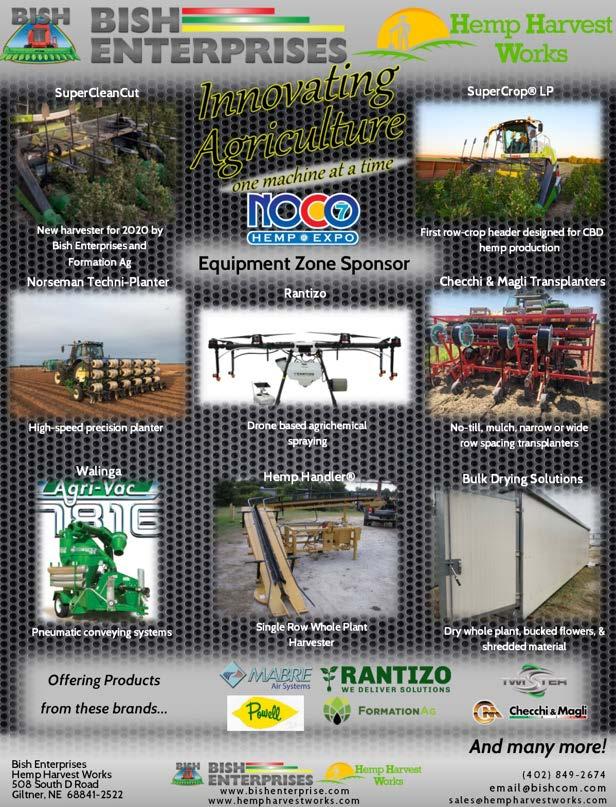




MUSHROOM PAVILLION

EQUIPMENT ZONE











123 Let’s Talk Hemp @ NoCo7 Digital Magazine
MATERIALS ZONE
REJUVINATION SPA
HEMP FASHION SHOW

FRIDAY, AUGUST 7 Let's Talk Hemp Business Conference 10am-5pm NoCo7 Music Experience Concert & Party, 8-11pm SATURDAY, AUGUST 8 Let's Talk Hemp Farm Symposium 10am-5pm EXPO HALL • Fri & Sat 10am-6pm HEMP PRODUCTS FROM AROUND THE WORLD CBD, CBG, Supplements, Food, Beverages, Apparel, Bioplastics, Hempcrete & more! PRESENTED BY PRODUCED BY NoCoHempExpo.com #nocohempexpo #noco2020 #noco7 The Most Comprehensive Hemp Exposition Trade Show & Conference on the Planet! MUSHROOM PAVILLION MUSHROOM PAVILLION PLANTS ZONE PLANTS ZONE MATERIALS ZONE MATERIALS ZONE EQUIPMENT ZONE EQUIPMENT ZONE Renaissance Hotel Stapleton 10am-5pm THURSDAY, AUGUST 6 NoCo Hemp Investor Forum SPONSORED BY SPA REJUVENATION SPA REJUVENATION HEMP FASHION SHOW HEMP FASHION SHOW






































































































































































































































































































